

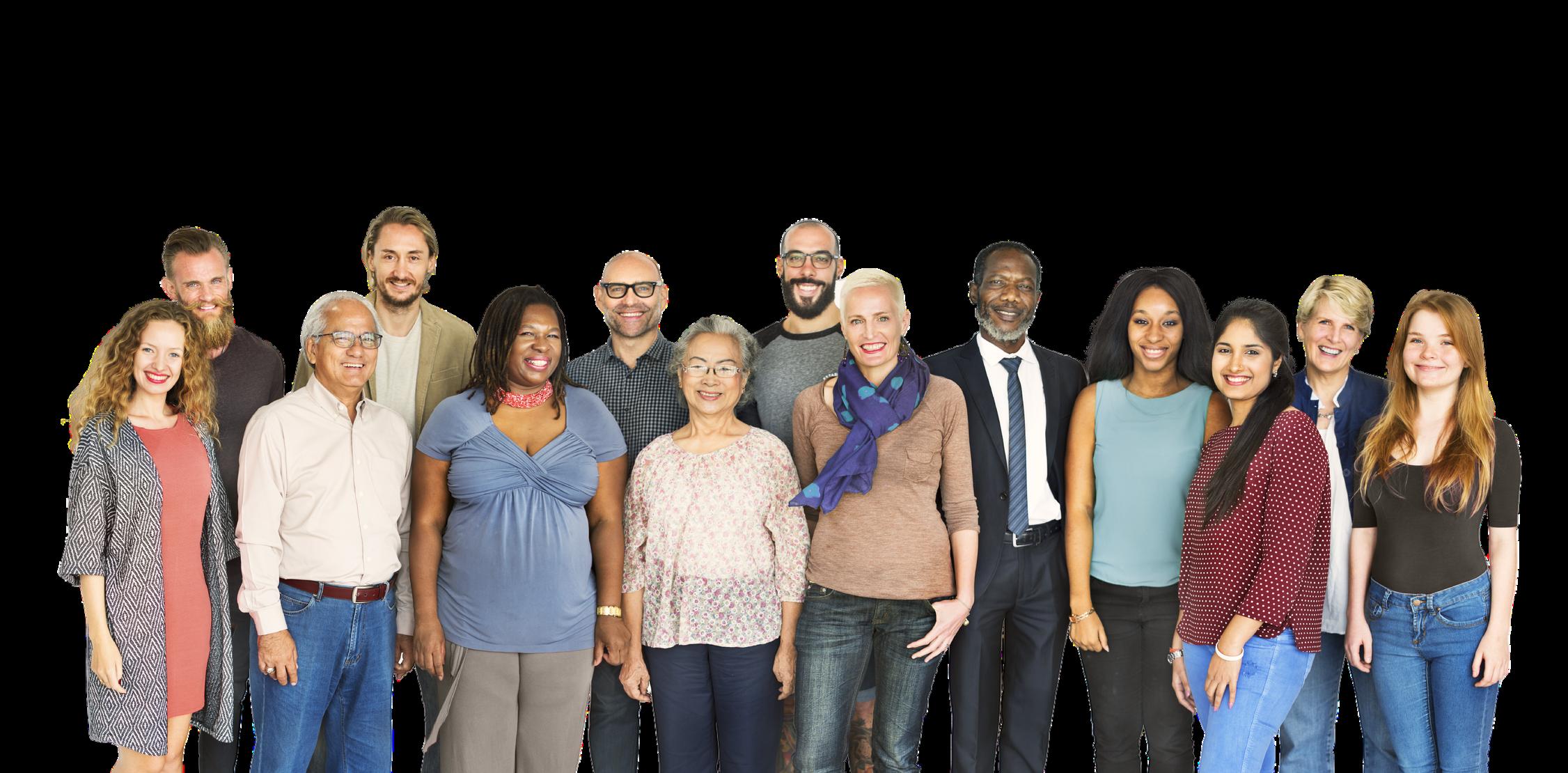
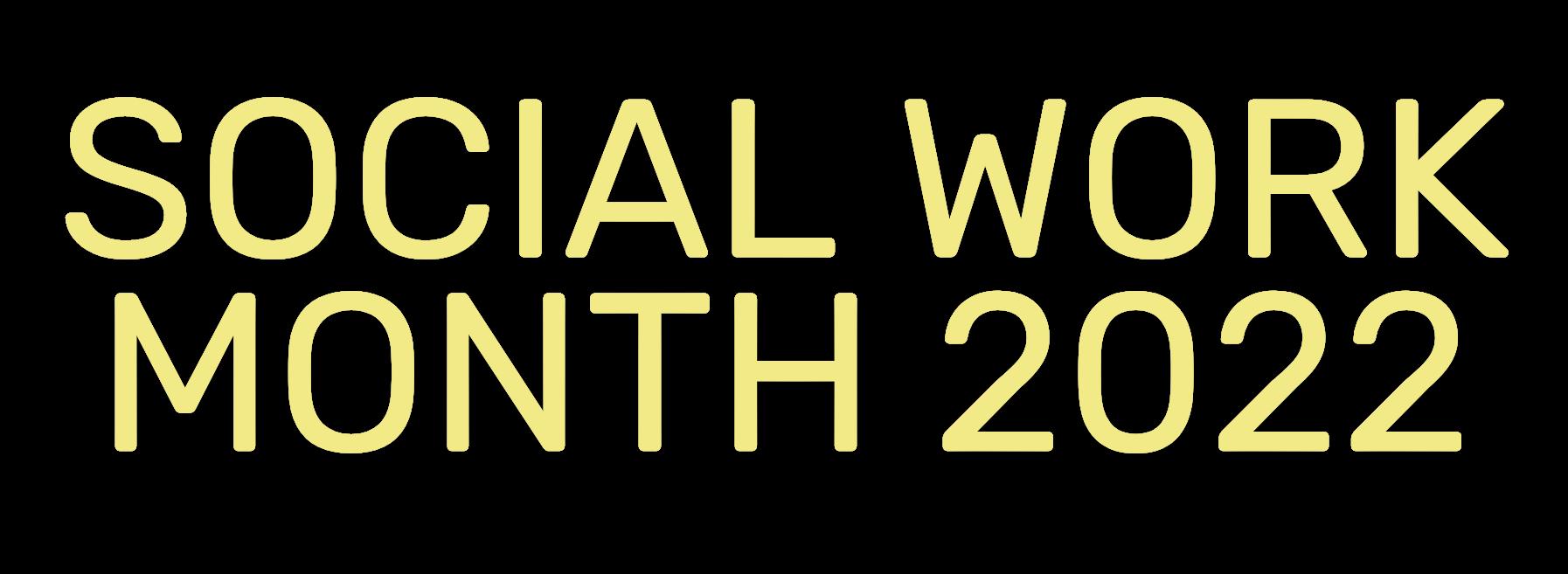

REFLECTIONS ON BLACK HISTORY MONTH p. 14 INSTITUTE OF ORAL HISTORY FOR SOCIAL WORK p. 10 NASW-NJ SOCIAL WORK AWARD WINNERS p. 12 MARCH 2022 • Vol 31.4
BOARD OF DIRECTORS

PRESIDENT, Widian Nicola
1 ST VICE PRESIDENT, Carrie Conger
SECRETARY, Ralph Cuseglio
NORTHEAST REGIONAL REP, Oninye Nnenji
SOUTHERN REGIONAL REP, Miriam Stern
ATLANTIC/CAPE MAY/CUMBERLAND CHAIR, OPEN
BERGEN/PASSAIC CHAIR, Melissa Donahue
CAMDEN/GLOUCESTER/SALEM CHAIR, OPEN
ESSEX CHAIR, OPEN
2 ND VICE PRESIDENT, Dawn Konrady
CENTRAL REGIONAL REP, Caelin McCallum
GRADUATE STUDENT REP, Hannah Loffman
UNDERGRADUATE STUDENT REP, Jack Serzan
NORTHWEST REGIONAL REP, Veronica Grysko-Sporer
UNIT LEADERS
NASW-NJ has 12 units across the state of New Jersey.
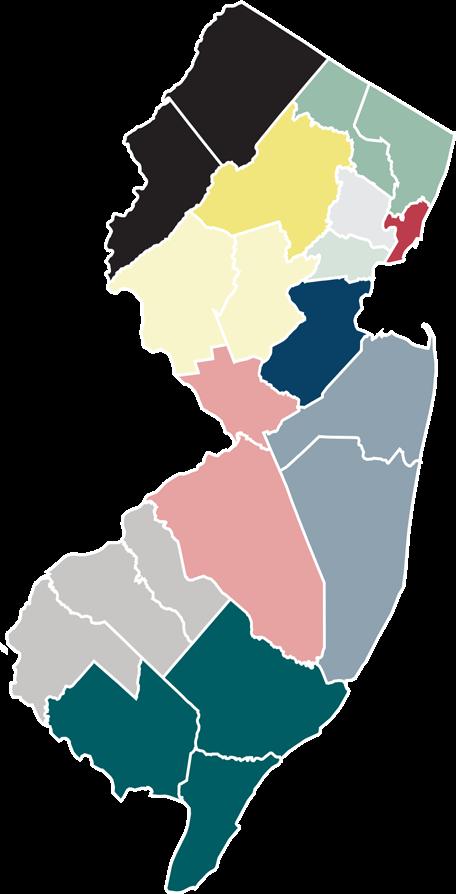
HUDSON CHAIR, OPEN
MERCER/BURLINGTON CHAIR, Miguel Williams
CO-CHAIR, Michele Shropshire
MIDDLESEX
CHAIR, Tina Maschi
CO-CHAIR, Vimmi Surti
MONMOUTH/OCEAN CHAIR, Jeanne Koller
MORRIS CHAIR, Cheryl Cohen
CO-CHAIR, Veronica Grysko-Sporer
SOMERSET/HUNTERDON CHAIR, OPEN
SUSSEX/WARREN
CHAIR, Dina Morley
CO-CHAIR, Afifa Ansari
UNION
CHAIR, Hannah Korn-Heilner
CO-CHAIR Sarah Delicio
CHAPTER OFFICE
EXECUTIVE DIRECTOR
Jennifer Thompson, MSW jthompson.naswnj@socialworkers.org or ext. 111
DIRECTOR OF DEVELOPMENT & EDUCATION
Helen French hfrench.naswnj@socialworkers.org or ext. 122
MEMBERSHIP AND EDUCATION SPECIALIST
Willis Williams wwilliams.naswnj@socialworkers.org or ext. 110
DIRECTOR OF MEMBER SERVICES
Christina Mina, MSW cmina.naswnj@socialworkers.org or ext. 117
DIRECTOR OF ADVOCACY & COMMUNICATIONS

Jeff Feldman, MSW, LSW jfeldman.naswnj@socialworkers.org or ext. 114
GRAPHIC DESIGNER
Katherine Girgenti kgirgenti.naswnj@socialworkers.org or ext. 129
NASW–NJ CHAPTER OFFICE
100 Somerset Corporate Blvd 2nd Floor, Bridgewater, NJ 08807, Ph: 732.296.8070, www.naswnj.org
FROM THE PRESIDENT AND EXECUTIVE DIRECTOR
CHAPTER ELECTIONS
SOCIAL WORK MONTH 2022 ACTIVITIES
INSTITUTE OF ORAL HISTORY FOR SOCIAL WORK: STORIES OF CHANGE
FREE CEUS FOR MEMBERS
NASW-NJ SOCIAL WORK AWARD WINNERS
LEGISLATIVE EDUCATION & ADVOCACY DAY
REFLECTIONS ON BLACK HISTORY MONTH
2022 VIRTUAL ANNUAL CONFERENCE
ADVOCACY IN ACTION
THE LATEST FROM THE FIELD
STUDENT CENTER
PARTNER SPOTLIGHT: RING CENTRAL MEMBER CONNECT
Thank you to our partner Rutgers School of Social Work for their support of NJ FOCUS

04 05 09 10 11 12 13 14 21 24 28 37 45 46 51
TABLE OF CONTENTS
PROFESSIONAL DEVELOPMENT
FROM THE PRESIDENT & EXECUTIVE DIRECTOR
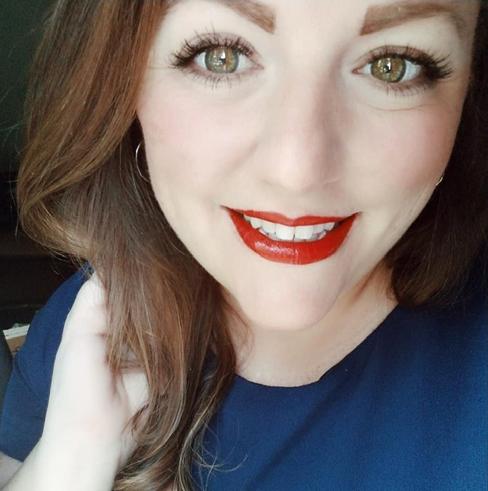
Friends and Colleagues, Happy Social Work Month!
Each March we come together to celebrate the social work profession, your contributions to our work, and the legacy of change social workers have brought about throughout history. It’s a time for reflection, for respite, and to re-center ourselves so we can continue in our important work. This year, our theme for Social Work Month is “The Time is Right for Social Work.”
We would assert the time has always been right for social work.
Social workers have led our communities, our nation, and our world through some of the most significant challenges of our time. Jane Addams established settlement houses for immigrants in the early 1900’s. Mary Church Terrell championed racial equality and women’s suffrage and was among the founders and charter members of the National Association for the Advancement of Colored People (NAACP). Frances Perkins, was the first woman to be appointed to the cabinet of a U.S. President and drafted much of President Franklin D. Roosevelt’s New Deal in the 1930’s. Whitney M. Young, a civil rights trailblazer, led the National Urban League and was an advisor to Dr. Martin Luther King, Jr. And NASW was key to inspiration for President Johnson’s War on Poverty.
There has never been a time in our history, a place in our nation, or an issue we faced where social workers were not needed—or where we did not lead.
When we look around at the challenges we face today—and they seem to mount week by week—it is profoundly clear the time continues to be right for social work.
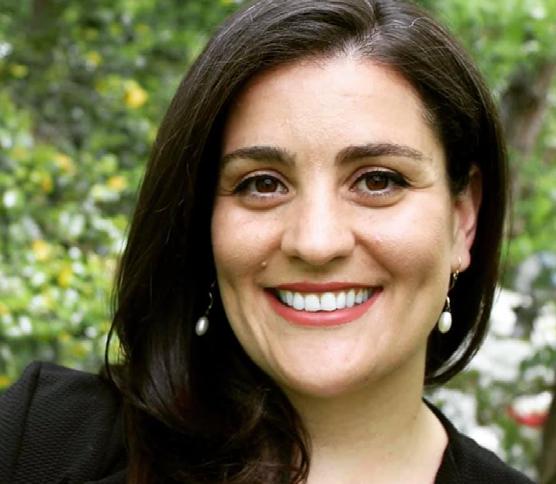

The time for us to lean in and lead up is now.
The time for us to organize is now.
The time for us to harness our collective power, expertise, and decades of accomplishments is now.
Now is also the time for social workers to be recognized in student loan forgiveness programs.
For social workers to receive payment parity.
For social worker to be sought after in legislative halls and to have a seat held at all decision-making tables.
In every room, at every juncture and in every conversation, the Time is Right for Social Work.
This month, as we celebrate the great work you do through self-care events, educational opportunities, and the launch of the Institute for Oral History of Social Work, we also reaffirm our commitment to you—our community—to elevate your stories and your work. To continue to demonstrate that the time has always been right for social work.
With gratitude for your service and in celebration for all you do daily to make our world stronger—
Jennifer & Widian
Widian Nicola, DSW, LCSW PRESIDENT
Jennifer Thompson, MSW EXECUTIVE DIRECTOR
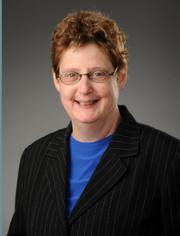
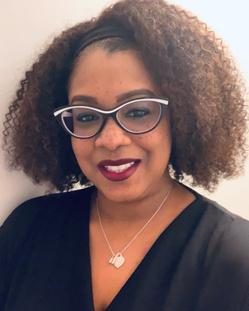
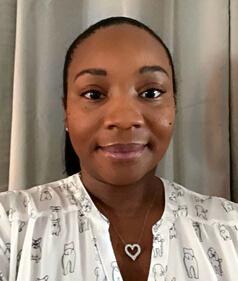
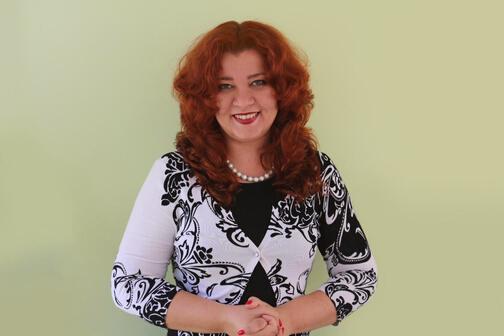


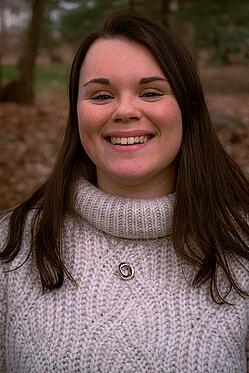
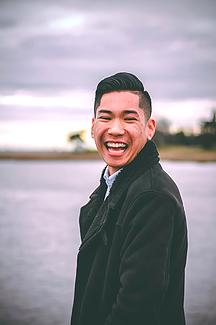
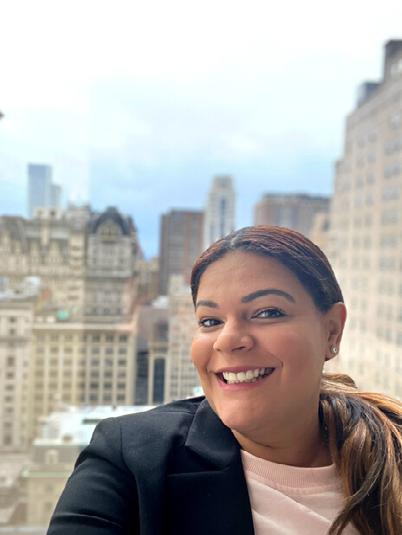
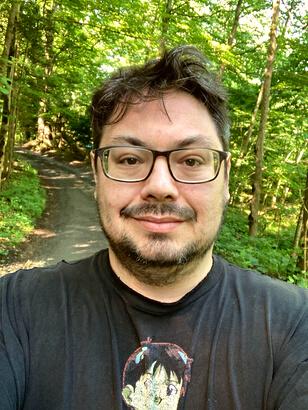
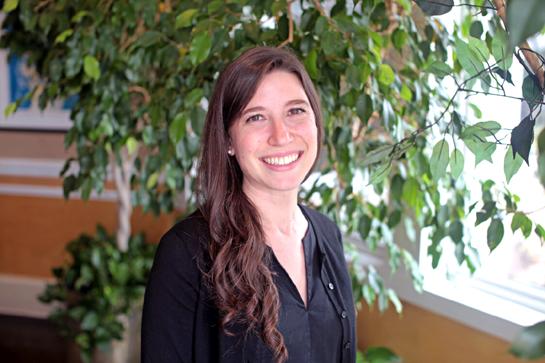

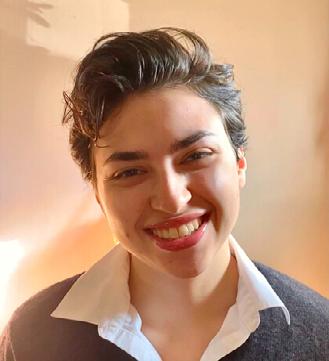
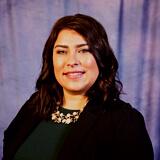
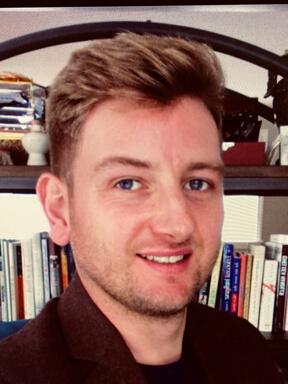
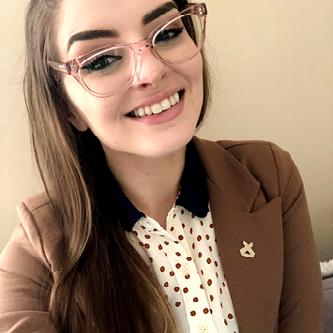
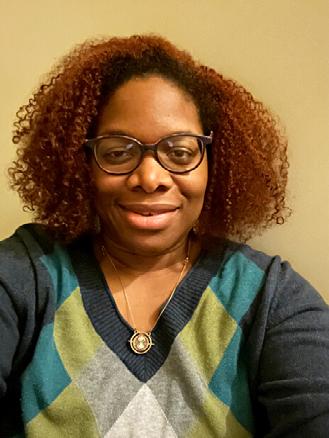
NJFOCUS • March 2022 | 5 2 0 2 2 N A S W - N J C H A P T E R E L E C T I O N S
V o t i n g O p e n s L a t e M a r c h
Jennifer Sorenson
Lisa Lawson
Justin Bucchio Tiffany L. Mayers
Matt Sato
L. Kahn
Lorna Jones
Elisabet Amadiz Josh Collins
Hannah Korn Heiler Resia Cooper
Olivia Monahan
Ratna Joshi-Nelson Nikia Palmer
Dr. Tina Maschi
President Elect Secretary
MSW Representatives
CCNLI
BSW Representative
Regional Representatives
VP Finance
C
Courtney Wise Ruslana Church
a n d i d a t e s
S O C I A L W O R K M O N T H 2 0 2 2

T H E T I M E I S N O W : S h a p e t h e F u t u r e o f S o c i a l W o r k



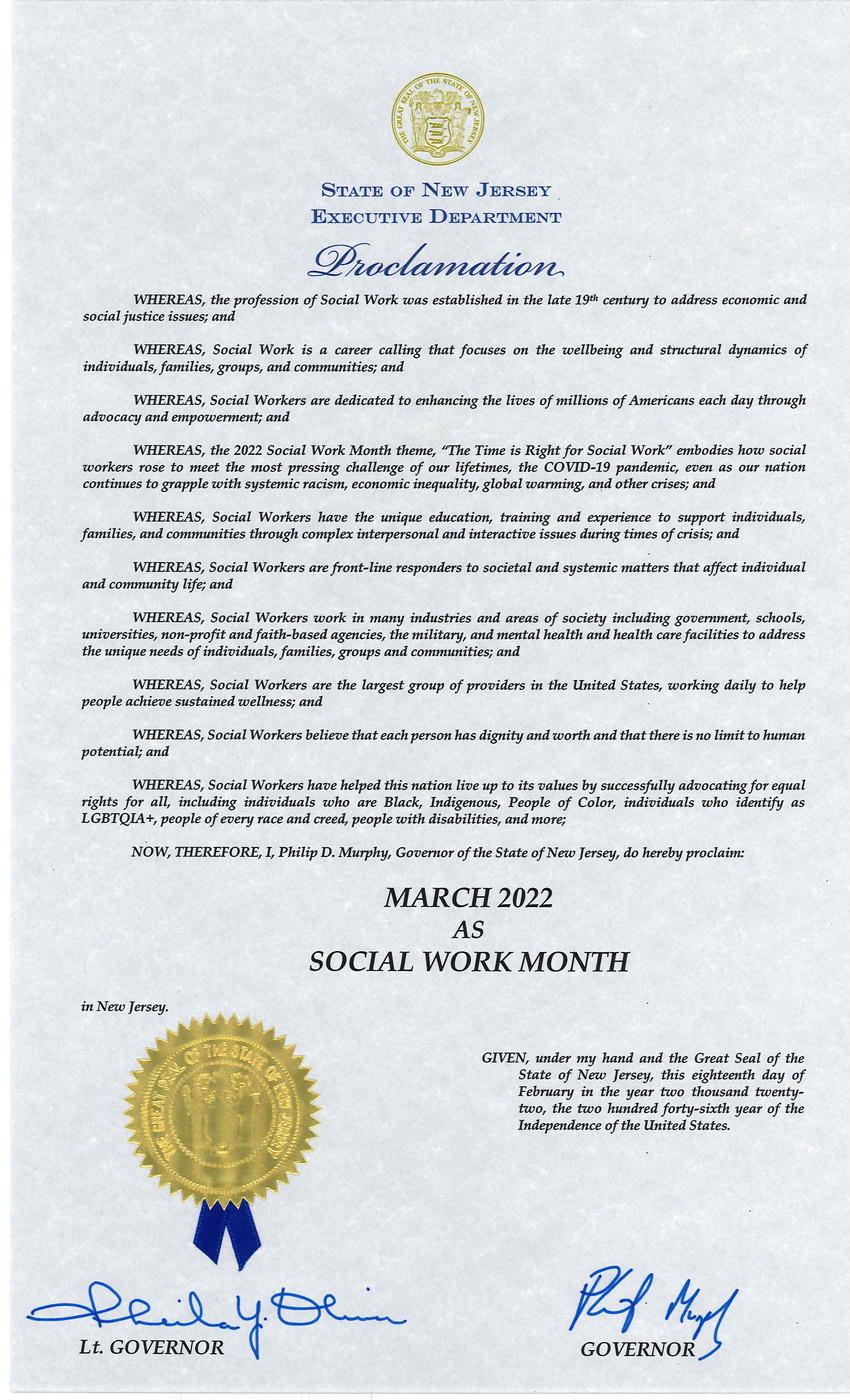
| 7 Social Work Month
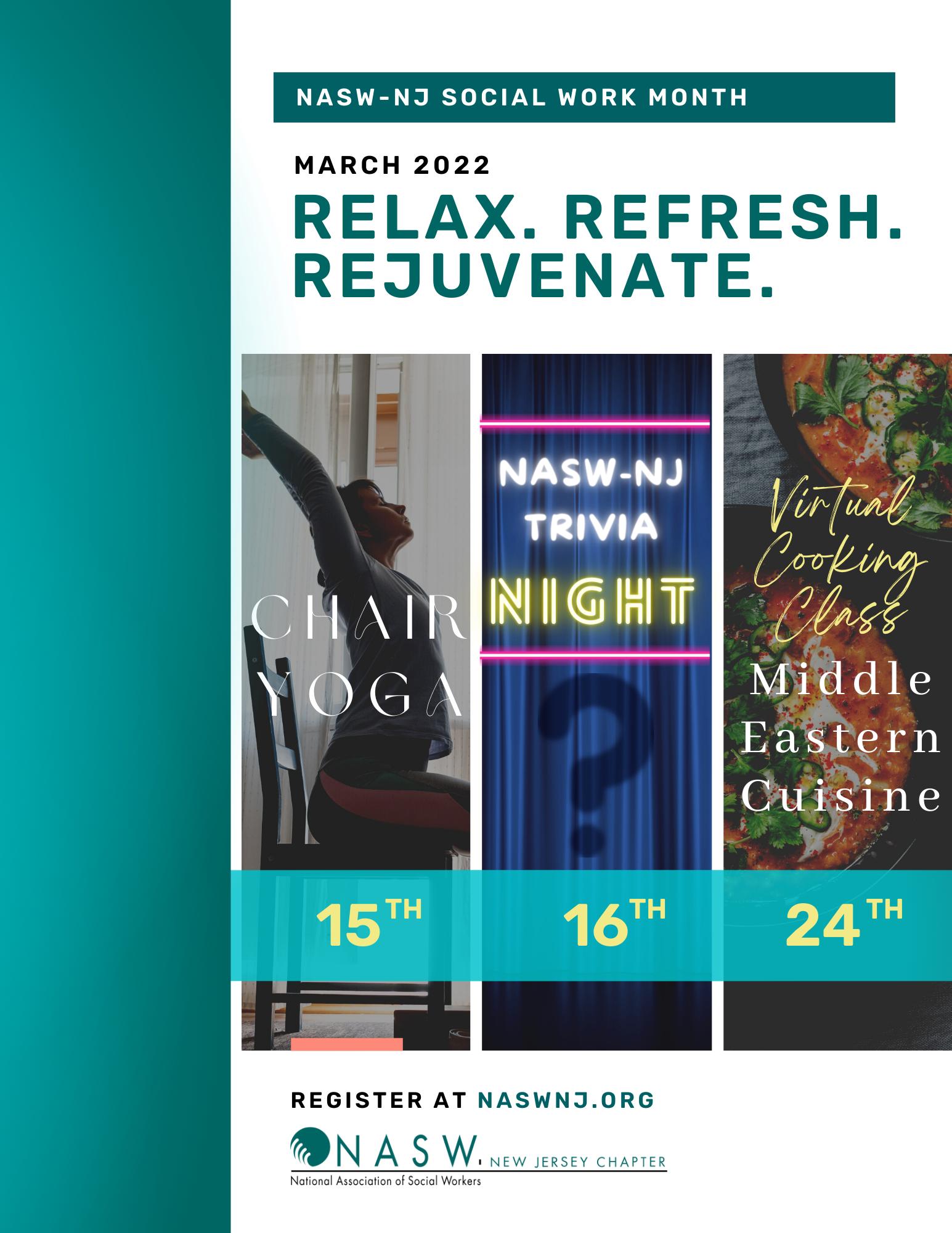
Social Work Month
M

A C T I V I T I E S
Virtual Paint n' Sip Self-Care Event
March 08, 7:00 PM - 8:30 PM EST
Mini Workouts for Social Workers (Bergen/Passaic Unit Event)
March 10, 6:00 PM - 7:30 PM EST
Importance of Play in Children's Development (Monmouth/Ocean Unit Event)
March 11, 2:00 PM - 3:00 PM EST
FREE FOR MEMBERS! Chair Yoga
March 15, 12:00 PM - 12:30 PM EDT
NASW-NJ Trivia Night

March 16, 7:00 PM - 8:30 PM EDT
FREE FOR MEMBERS (1 CEU Live Webinar) Emotional Freedom Technique (Tapping for you & your clients)
March 23, 6:00 PM - 7:00 PM EDT
Virtual Cooking Class- Middle Eastern Cuisine
March 24, 6:30 PM - 8:00 PM EDT
Overview of Women Aware Services and Dynamics of Domestic Violence (Middlesex Unit Event)
March 25, 12:00 PM - 1:00 PM EDT
FREE FOR MEMBERS (2 CEU Live Webinar) Harm Reduction Strategies
March 30, 6:00 PM - 8:00 PM EDT
Connecting and Mattering During Challenging & Unsettling Times
March 31, 12:30 PM - 1:30 PM EDT
NJFOCUS • March2022 | 9 S O C I
W O R K S O C
W O R K
A L
I A L
R e g i s t e r a t n a s w n j . o r g T H E T I M E I S N O W : S h a p e t h e F u t u r e o f S o c i a l W o r k
O N T H 2 0 2 2 M O N T H 2 0 2 2
Social Work Month
Stories are powerful. Through story telling we make sense of our world, spread ideas, and document our history. The stories of the social work profession represent the efforts of social workers, the communities they served, the lives they changed, and the policies they drove.
The history of the social work profession is long and deep—marked by the deeds of advocates who led us, teachers who inspired us, colleagues who mentored us, and coworkers who uplifted us on the hardest of days. These are the stories of change agents, leaders, and helpers—generations of social workers who uplifted communities and the legacies they have built. They enrich our understanding of our past, allow us a glimpse into the lives of those on the front lines, and help us understand how our profession changes the lives of everyday people, families, and communities across our nation.
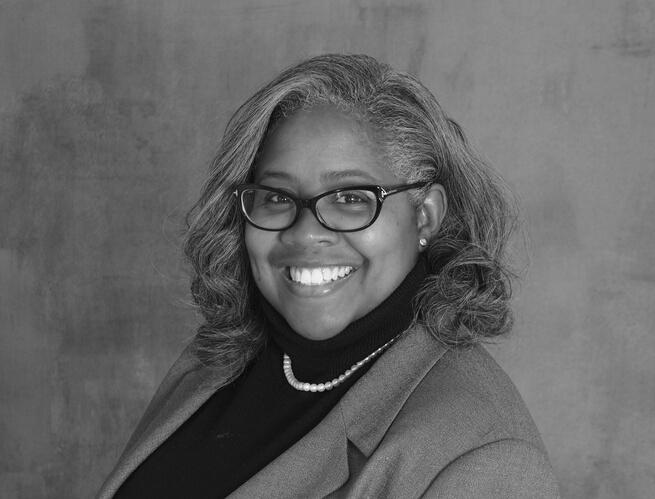
Now, NASW-NJ has made it possible for these stories to be documented and preserved for generations to come. This Social Work Month, we are proud to launch “Stories of Change: The Social Work Oral History Institute” in collaboration with StoryCorps. These stories will be preserved for posterity in the American Folklife Center at the U.S. Library of Congress.
We’ve launched the Oral History Institute with the stories of more than a dozen prominent and well-known social workers—including Dr. Mildred "Mit" Joyner, current President of NASW National; Dr. Tawanda Hubbard, the first woman of color to serve as President of the NASW-NJ Chapter; Bill Waldman, former Commissioner of the New Jersey Department of Human Services; and Dr. Phylis Peterman, long-time Chair of the Department of Social Work at Rutgers University – Newark, among others.
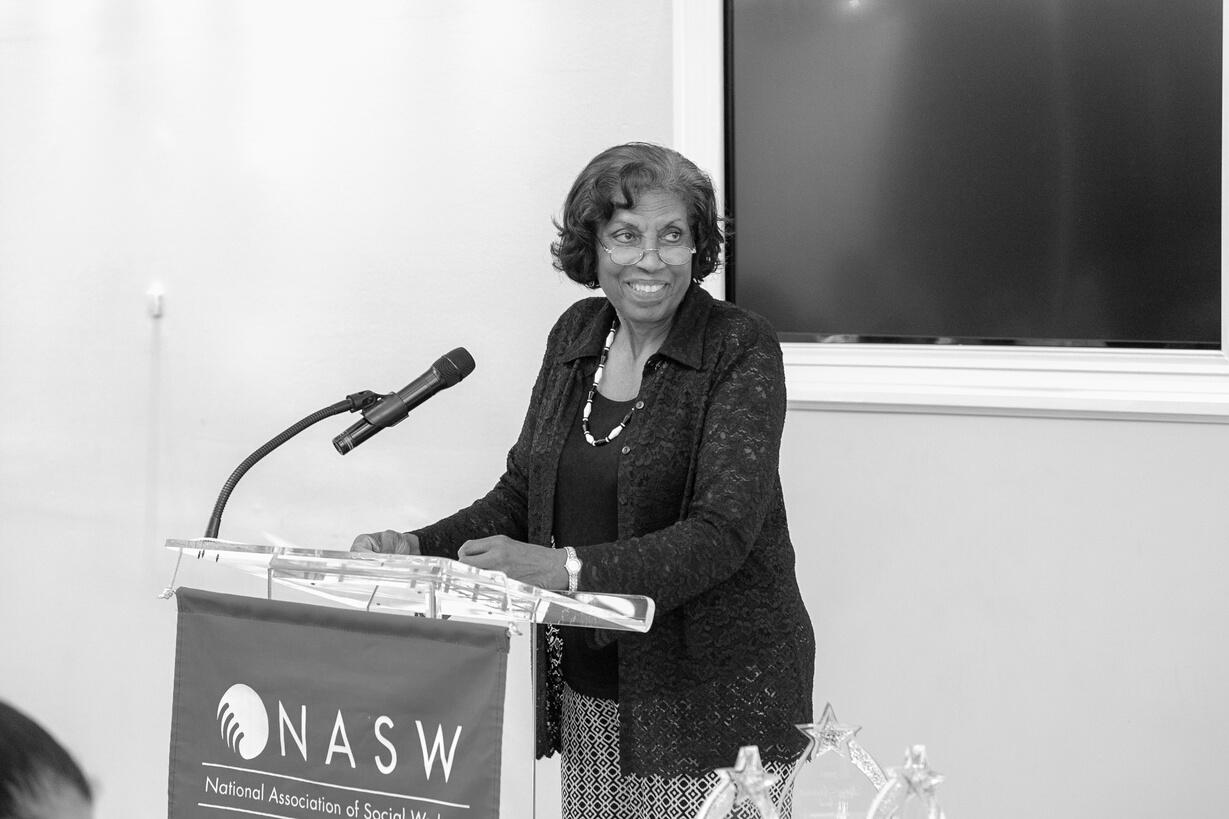
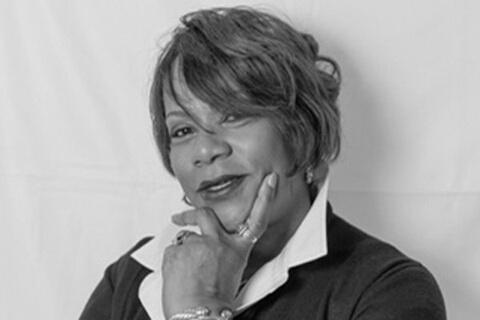
We invite you to listen to the stories we’ve collected already and to help shape the growing Oral History Institute, as well, by capturing the stories you hold and those of the colleagues you know.

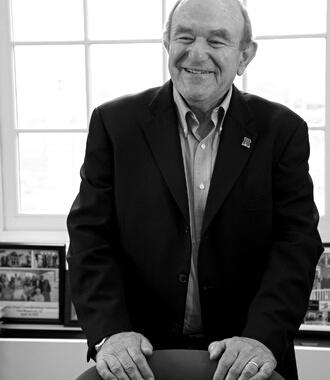
Each social worker has a powerful story to tell—a story of a life touched, a community uplifted, a project that affected change, and more. We invite you to share your sories and those of your colleagues. Learn more at our website
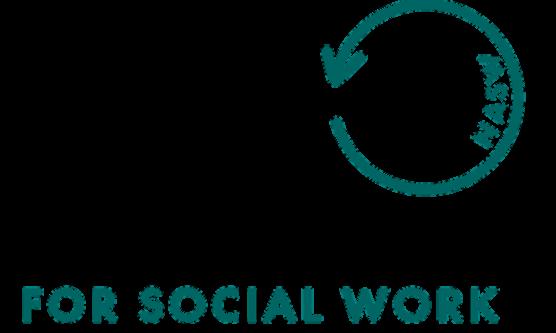
Ready to hear from some passionate, inspiring social workers?

Click the photos to the left to hear their stories of change.


S t o r i e s o f C h a n g e : T H E S O C I A L W O R K O R A L H I S T O R Y I N S T I T U T E
Social Work Month
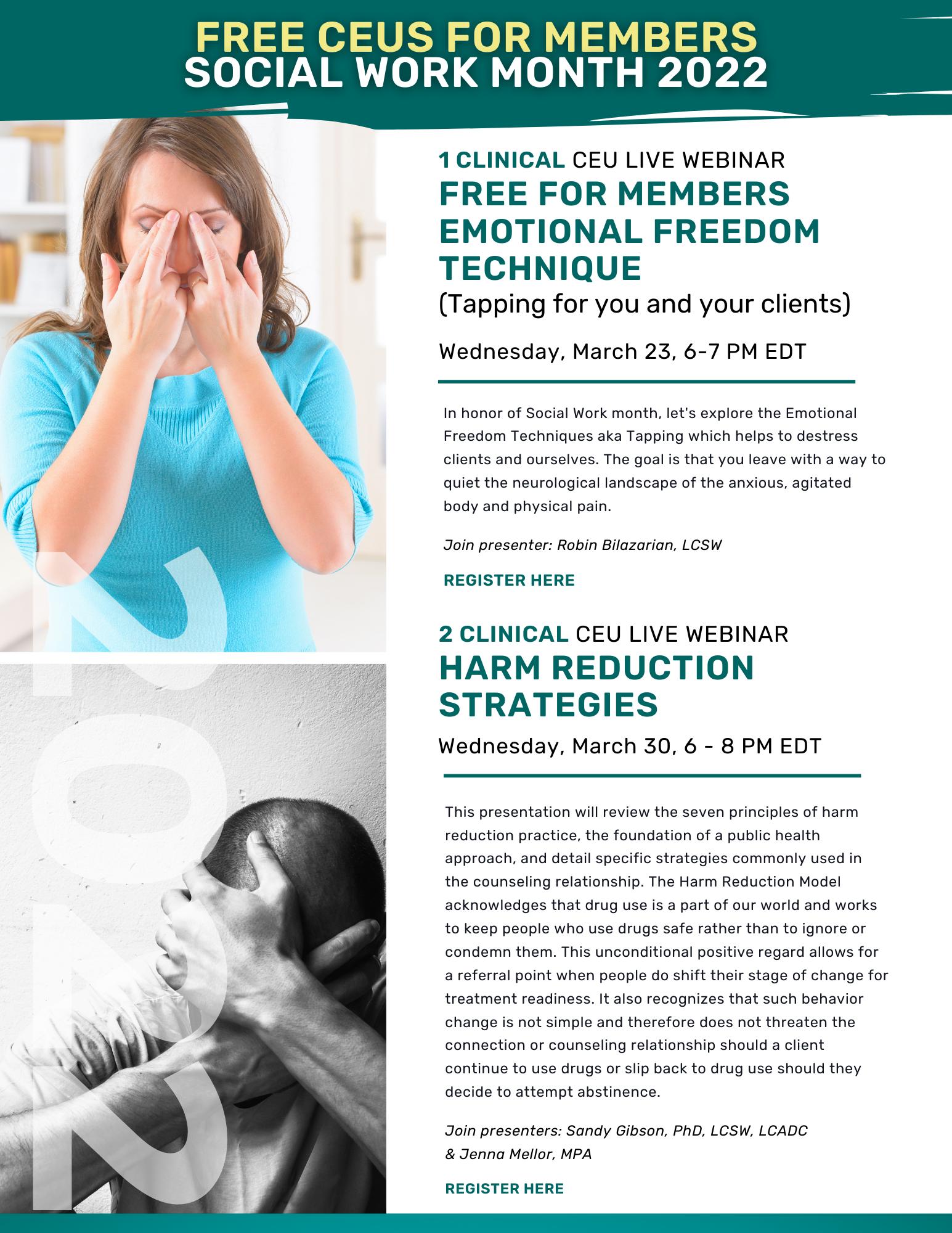
Social Work Month
AWARD WINNERS



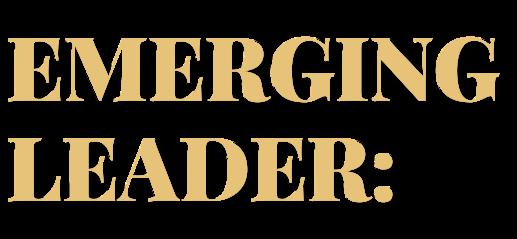







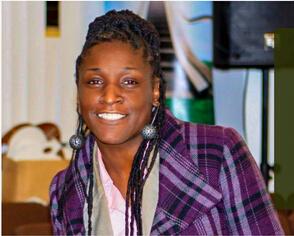
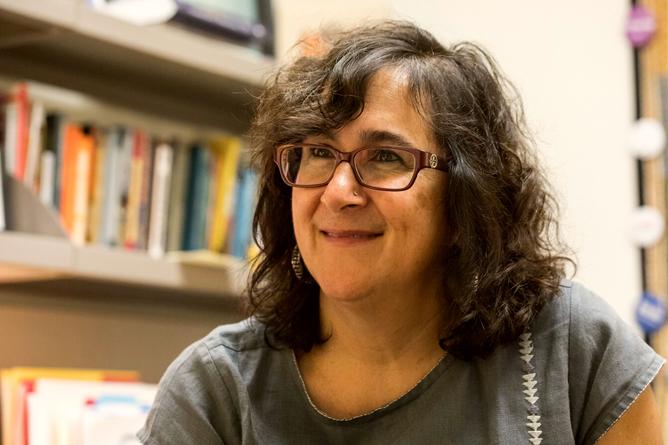
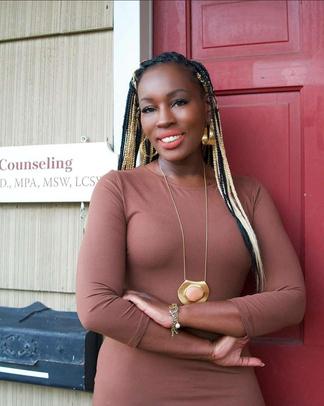


NASW-NJ SO
La’Tesha Sampson
Anne Deepak
Lakeesha Eure
Social Work Month
Babs Siperstein PROUD Center

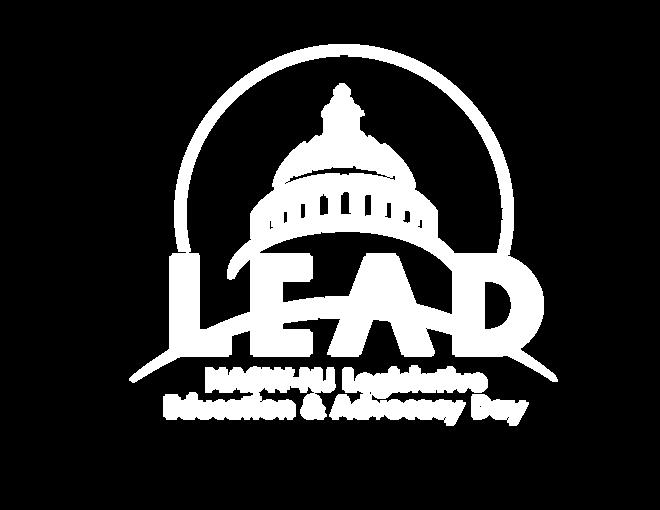

N A S W - N J L E G I S L A T I V E E D U C A T I O N & A D V O C A C Y D A Y H E L D V I R T U A L L Y O N M A R C H 2 9 , 2 0 2 2 L e a r n m o r e a t : n a s w n j . s o c i a l w o r k e r s . o r g / A d v o c a c y / L E A D Social Work Month
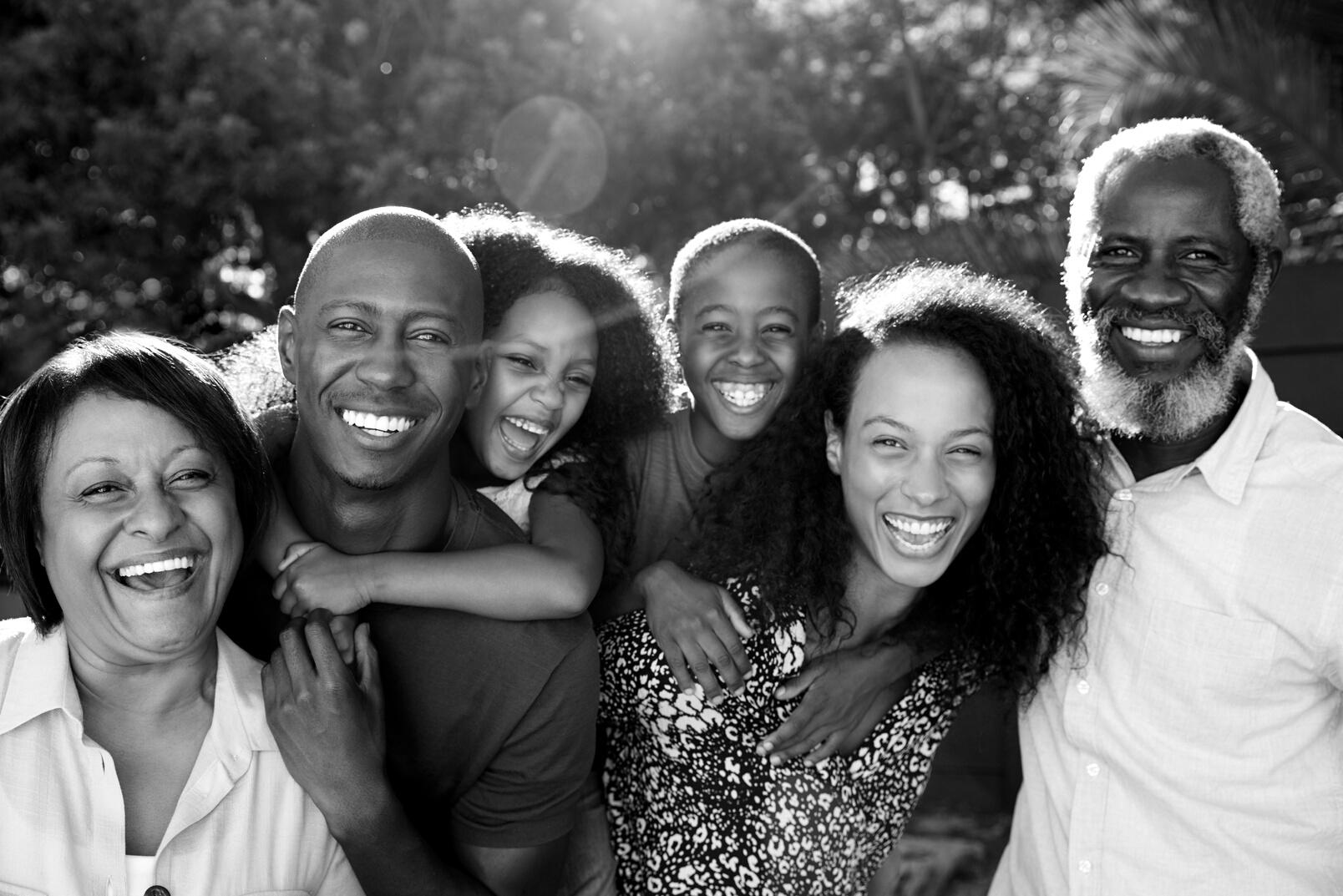


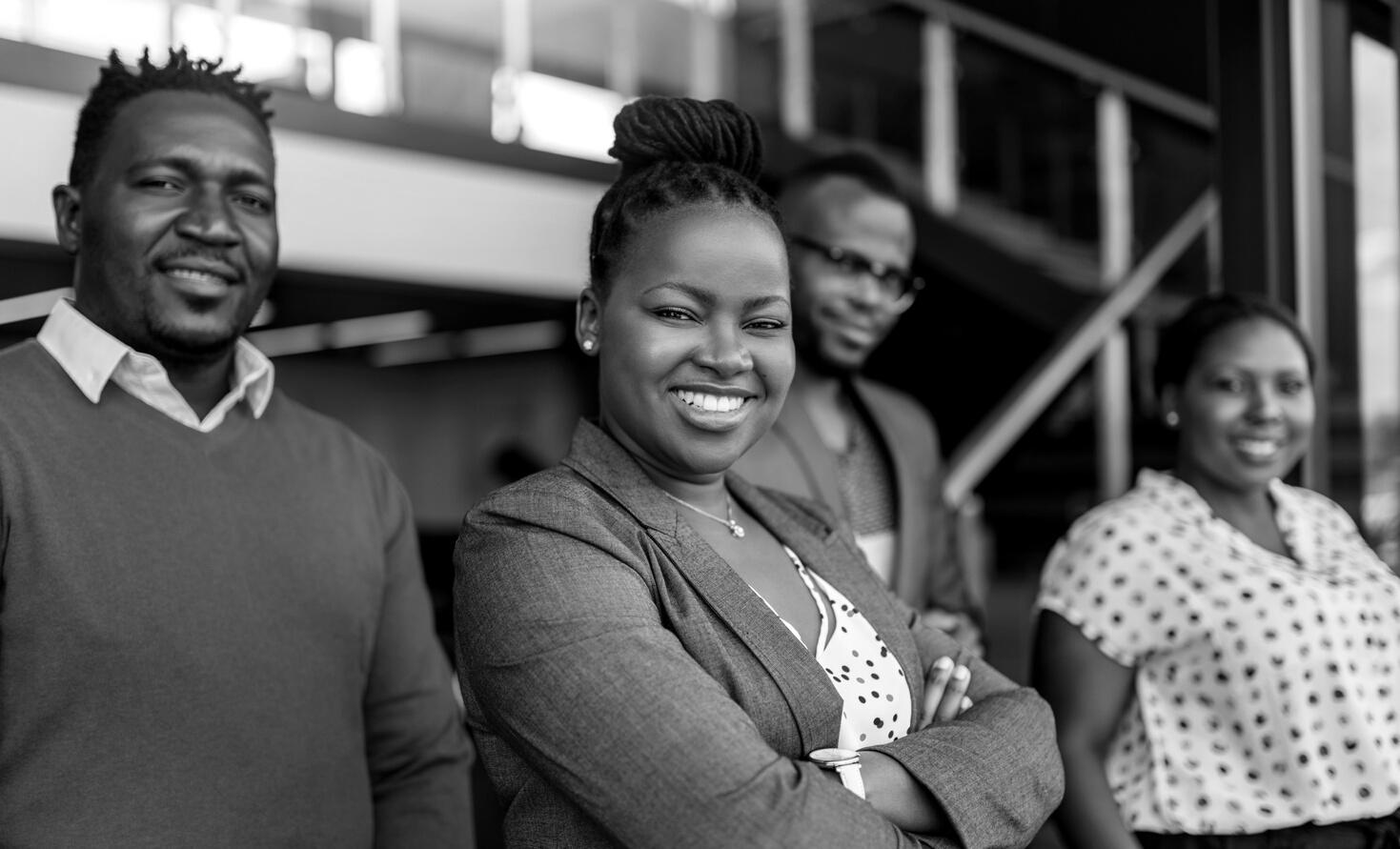
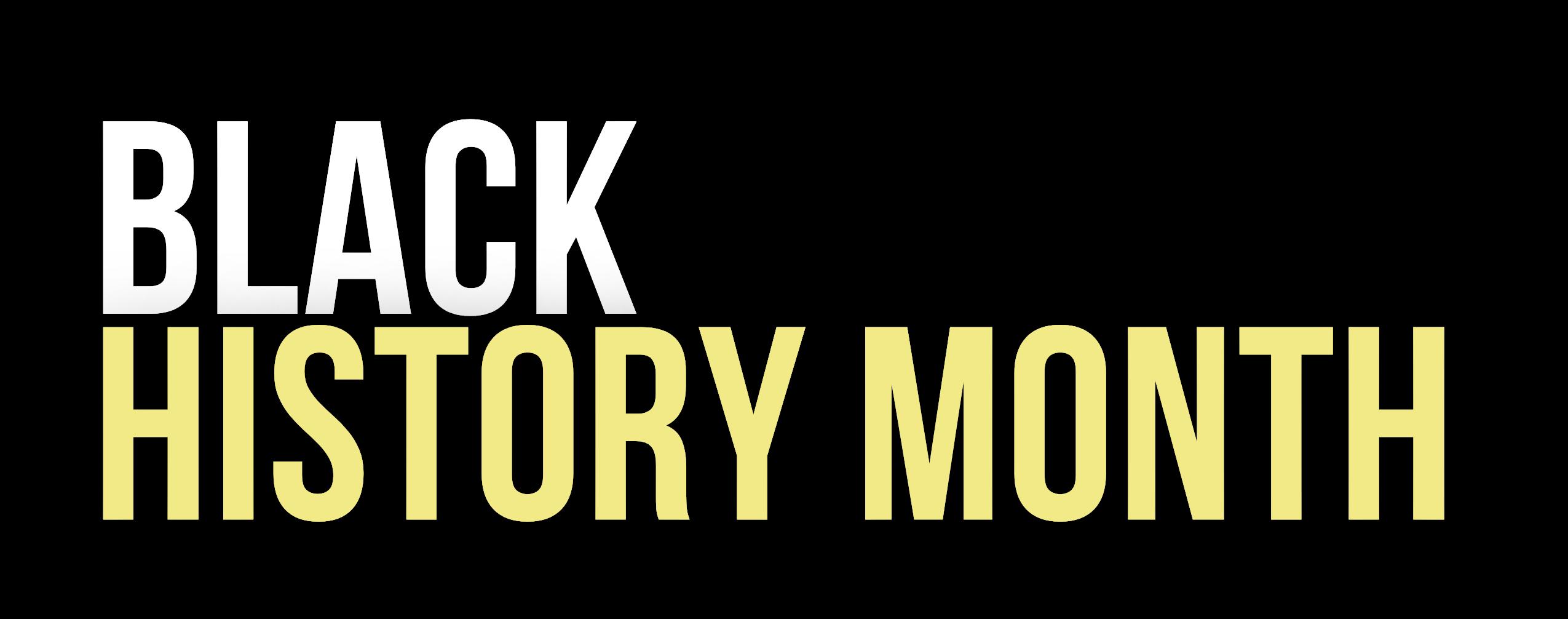
The Enduring Contribution of Black Women to United States Politics
By Katey Meza Harrington, MSW Candidate
Throughout the course of America’s history, Black women have made sacrifices to better our nation. Their achievements, however, can come at a cost. Sometimes it’s being forgotten by history books, or not living long enough to enjoy the opportunities they create. This drive for liberation should come as no surprise—for them the political is personal. It is their children being harassed, killed, and held unjustly; their education hindered; and their votes not counted.
Long before it was a term, Black women demonstrated an intersectional approach to social justice. Dr. Hettie V. Williams,
professor of African American history at Monmouth University, points out Black women were progressive intellectuals influencing politics long before they were allowed scholarship. They do this by making what may initially seem as Black women’s issues into American issues.

Maria W. Stewart was a feminist and abolitionist known as the first woman to address a mixed audience of men and women. In the 1830s she used the church to present the moral outrages of slavery to the New England Anti-Slavery Society, calling for women’s voices to be as loud as men’s . Using the Christian bible to demonstrate America’s
deviation from righteousness, Stewart was one of the earliest Black leaders of the church movement to end oppression. Despite the feat of being published in 1832 under her own name, her legacy is relatively unknown.
Mary McLeod Bethune was educated during the Reconstruction era and believed education was the path to upward mobility for African Americans in the 1890s. Trained as a missionary, she could not find a post that would accept her. So, she founded schools for Black girls, created the National Council of Negro Women, had a leadership role with the NAACP, and was consulted by Presidents Coolidge and Hoover on issues of child welfare. She became an advisor to Eleanor Roosevelt and was appointed director of Negro Affairs by President Roosevelt. She pushed President Truman to allow women to fight during WWII. While posthumously honored with a memorial in Washington and a postal stamp, she died in 1955 before getting the right to vote in her home state.
Dr. Marion Thompson Wright wrote her 1940 Columbia University dissertation on “The Education of Negroes in New Jersey.” She found that despite an 1881 law against it, Garden State schools were segregated. In 1944 that research was used in a desegregation lawsuit against the Trenton Board of Education. The state constitution was rewritten in 1947 declaring segregation harmful and illegal. Dr. Wright’s work and the New Jersey Constitution were used as a roadmap by the NAACP in the Brown v. Board of Education case that effectively began national desegregation. While her work lit a flame that changed American schooling, the cost was her family.
NJFOCUS • March 2022 | 15
“Black women continue to remind America what is fair and do the work to get us there, even while they are obstructed."
Black History Month
In the 1920s when she began college, married or divorced women were barred from entrance. As such, throughout her education she had to hide her marriage and the existence of her children.
Anita Hill became a pariah by bringing sexual harassment into the national conversation, raising the idea that it should be a punishable offense. In 1991 she filed what she thought was an anonymous report to the FBI—a moral objection to the nomination of Clarence Thomas to the U.S. Supreme Court. The only woman to testify at Congressional hearings, she was cross-examined by a panel of established White men who accused her of lying, insanity, revenge, and martyrdom. She was pressured out of her job as the first African American tenured professor of law at the University of Oklahoma. She became the subject of books proclaiming her promiscuity. Polling at the time reported most Americans didn’t believe her allegations. Can that be true with all the immediately followed?
• A record number of women ran for office the next year
• NYT article showed that the EEOC had a 73% spike in calls reporting sexual harassment
• The Civil Rights Act of 1991 was enacted to deter unlawful workplace harassment and provide legal remedies
She paved the way for Christine Blasey Ford to testify at another Supreme Court nomination and the #MeToo movement that followed. Hill is now a professor of social policy, law, and women’s studies at Brandeis University, but what a price to get there.
Black women continue to remind America what is fair and do the work to get us there, even while they are obstructed. Stacey Abrams works to ensure the most basic tenet of democracy—the right to vote—is not corrupted. As a Georgia state house representative, and through the New Georgia Project she aimed to remove the discrepancy between eligible and registered voters. Knowing the impact Jim Crow voter suppression had on her family, she knows its legacy is a fear and disdain of politics many in the Black community experience. To counter, she has said “you can’t give up the power you have to get the power you want.” Abrams’ loss in Georgia’s 2018 gubernatorial election is controversial since her contender oversaw the process and didn’t abdicate the role until the race was nearly over. Immediately after she began a new effort: Fair Fight calls attention to new practices of voter suppression in over 20 states and actions we can take to remedy them. Fair Fight is credited with getting thousands of Black, Latinx and Asian Americans registered and voting in Georgia for the 2020 elections.
As we witness what these women do from the fringe, we must ask ourselves what we will accomplish when our republic truly reflects its inhabitants. Perhaps their motivation could best be articulated by a peer:
...I could recite these problems and then I could sit down and offer no solutions, but I don’t choose to do that either. The citizens of America expect more, deserve and they want more than a recital of problems. We are a people in a quandary about the present. We are a people in search of our future. We are a people in search of a national community. We are a
people trying not only to solve the problems of the present [... ] but we are attempting on a larger scale to fulfill the promise of America. We are attempting to fulfill our national purpose, to create and sustain a society in which all of us are equal.
-U.S. Representative Barbara Jordan’s keynote speech at the Democratic National Convention of 1976
References:
1 Kimberlé Crenshaw https://youtu.be/ sWP92i7JLlQ
2 https://newbooksnetwork.com/hettie-vwilliams-bury-my-heart-in-a-free-land-blackwomen-intellectuals-in-modern-u-s-historypraeger-2018/ minute 8:14
3 https://www.thoughtco.com/maria-stewartbiography-3530406
4 https://www.womenshistory.org/educationresources/biographies/mary-mcleod-bethune https://www.blackpast.org/african-americanhistory/wright-marion-thompson-1902-1962/ 5 https://apnews.com/article/ f41233ffc9ca484ca8a91a59c083f6f9
6 https://www.nytimes.com/2019/06/17/us/ anita-hill-women-power.html
7 https://www.eeoc.gov/civil-rights-act-1991original-text
8 https://www.oprahmag.com/life/a24749080/ stacey-abrams-georgia-governor-race-condede/ 9 https://www.nytimes.com/2018/11/14/us/ florida-georgia-scott-kemp.html
10 https://www.nytimes.com/2021/01/05/us/ politics/stacey-abrams-georgia.html
11 https://www.rev.com/blog/transcripts/repbarbara-jordan-1976-democratic-nationalconvention-keynote-speech-transcript
About the Author:
Katey Meza Harrington is in her last semester of the MSW Program at Monmouth University, with a concentration in Global and Community Practice. She loves research and writing. Upon graduation she hopes find work in policy analysis.
16 | NJFOCUS •March 2022
Black History Month
Stop the Madness so We Can Heal
By Tiffany L. Mayers, MSW, LCSW
the opportunity to advocate for and create change.
As a social worker, it is no longer enough to just be culturally competent. It is imperative that social workers continue fighting against injustices for all populations of people, especially Black people, in order to eradicate the tumultuous madness taking place in today’s society. We cannot uphold certain components of our Code of Ethics while overlooking others because they cause us discomfort. Becoming a social worker means becoming a change agent, an advocate, a social justice enforcer, an ally, and so much more. It’s time to become comfortable with being uncomfortable and stand in our social work greatness while fighting for equality, opportunity, fairness, equity, justice, diversity, and freedom. These opportunities to carry out our mission as social workers come in many shapes, forms, and fashions. We all can get involved!
STOP THE MADNESS so we can heal! This is what comes to my mind when thinking of the myriad of racial and social issues Black people face in today’s world. How do we stop this madness? How can we begin to heal without truly acknowledging the systemic oppression that still lingers in today’s society? And how do we move forward without an appreciation for the full richness of Black history—not just for one month, but every day?
Black history is American history, and our contributions to this nation and the broader world matter. However, progress will remain stagnant until society is willing to recognize the injustices that have plagued, and continue to plague, the Black community, contributing to our inability to heal. According to Washington (2020), “the proper healing of a people is difficult without a correct understanding of those peoples’ experiences and their worldview.” This is where social workers of all backgrounds have
How does one honor this crucial piece of our social work mission? On a micro-level, it may be educating yourself more about the Black experience, so that you can show up as the therapist your clients need you to be for them. Considering that Black people are roughly 20-25% less likely to seek mental health services in comparison to their white counterparts, it is a great feat that they are allowing themselves to be vulnerable and show up for help.
On a mezzo-level, you may need to advocate for the Black student that is quickly given a label within the school system without considering their home environment and how
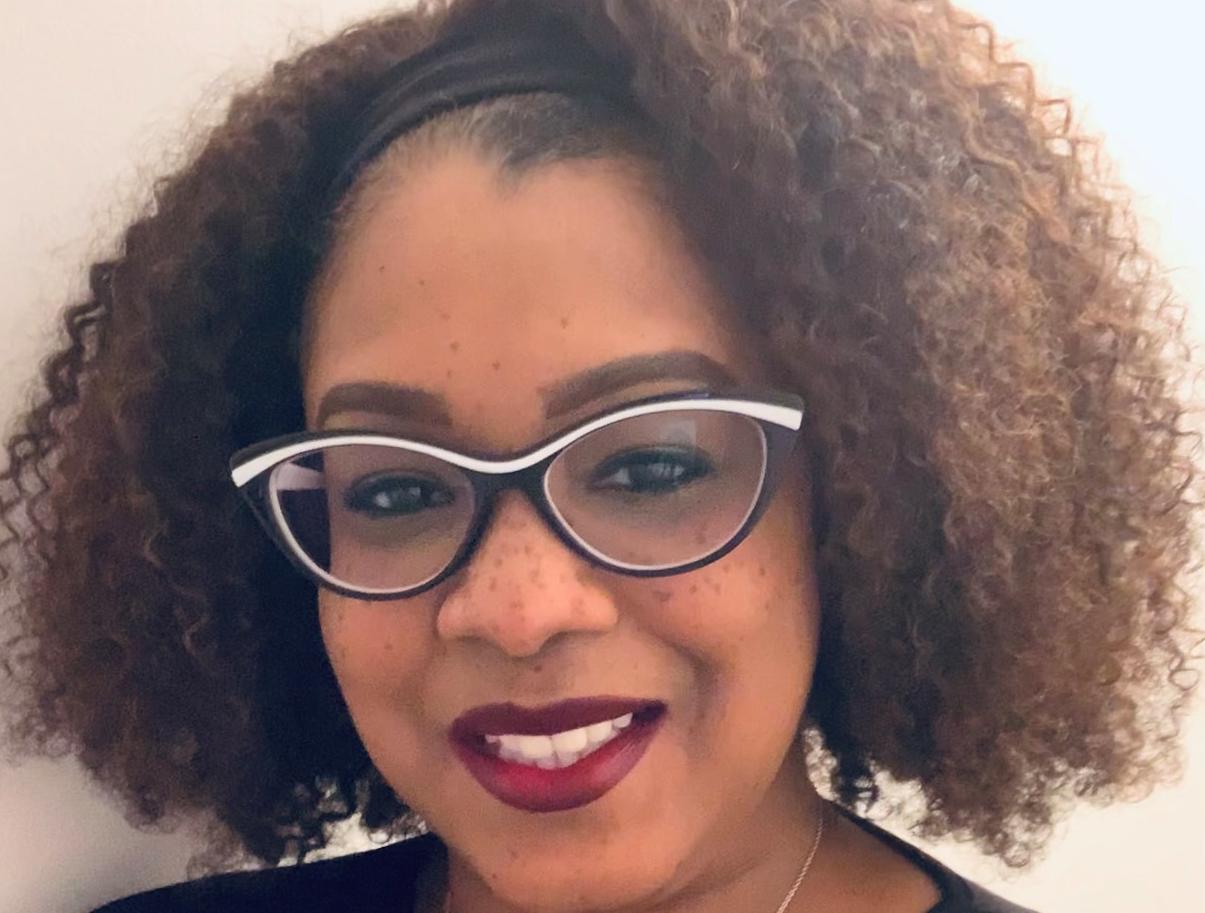
NJFOCUS • March 2022 | 17
“It’s time to become comfortable with being uncomfortable and stand in our social work greatness while fighting for equality, opportunity, fairness, equity, justice, diversity, and freedom."
Black History Month
that may be contributing to their challenges in the classroom. This may require social workers to educate parents on how to advocate for additional services.
Lastly, on a macro-level, you can advocate for public policy reform of those policies that impede the ability of Black people to succeed in society at equitable rates to the rest of the population. Social workers have the opportunity to speak for the unspoken, advocating to change laws and policies that perpetuate the disenfranchisement of Black people.

As we continue honoring Black history and celebrate Social Work Month, my hope is that all social workers will challenge themselves
to rediscover why they joined this field. We each have a unique story or experience that led us to choose social work, and our stories need to be told. I joined the field to assist in eradicating the stigma associated with mental illness and treatment for these issues, and to help Black children and families improve their mental health and wellness. Awareness of the importance of mental health is advancing within the Black community, and I am proud to know that I am a part of that movement. By telling our stories, we can construct a bridge between our differences and similarities, in hopes of us all coming together to stop the madness.
About the Author:
Tiffany L. Mayers, MSW, LCSW is an Administrative Director at Rutgers University and a parttime therapist, focusing on children and families experiencing mental health challenges. She is the owner of Mental Health T Enterprises and can be followed on social media @MentalHealthT. Tiffany is also a consultant with NAMI NJ’s African American Outreach program, AACT-NOW, as the Central Regional Coordinator. She has been a member of NAMI NJ since 2008 where she continues the conversation about mental health in effort to lessen the stigma within various communities, but particularly within the Black community.
18 | NJFOCUS •March 2022
Black History Month
H i d d e n H i s t o r i e s :
Lester Blackwell Granger (1896-1976)

Asocial worker, educator, National Urban League executive director, and civil rights leader, Lester Blackwell Granger introduced civil rights to the social work agenda as a national and international issue. He focused attention and advocacy energy on the goal of equal opportunity and justice for all people of color, even while focusing on the condition of Black people in the United States. He is credited with leading the development of unions among Black workers, as well as integrating white unions. He led the integration of Black workers in defense industries and the beginnings of racial integration in the military services during World War II. 1
Lester Granger was born on September 16, 1896, in Newport News, Virginia, to William Randolph Granger and Mary Louise Turpin (Granger). His father was a Barbadian immigrant and medical doctor; his mother was a schoolteacher. 2,3 The Grangers chose to raise their family in a racially-tolerant community where educational opportunities were available to Black people, and relocated from Virginia to Newark, New Jersey. Lester was the only one of the Granger’s six children not to pursue a career

NJFOCUS • March2022 | 19
U N C O V E R I N G T H E D I V E R S E R O O T S O F S O C I A L W O R K
Black History Month
in medicine. 4 Rather, he aspired to a career in international banking, but found "that American banks had a colored bar as unyielding and as brutally applied as [Jim Crow] rules on southern trains." Therefore, he enlisted in the United States Army during World War I and was stationed in France with the Allied Expeditionary Force as a Lieutenant in the field of artillery. 5 He earned a bachelor’s degree from Dartmouth College in 1918, following his discharge from the Army. 6
Upon graduation from college, Granger joined the National Urban League (NUL) where he became the Newark chapter’s industrial relations officer. He left the League and was employed as a social worker from 1922 to 1934, working with Black youth in New Jersey’s Bordentown vocational school system. 7 In 1934, Granger left his social work position at Bordentown to return to the NUL. He worked in its New York headquarters as business manager of its publication, Opportunity: A Journal of Negro Life . From 1934 to 1938, he also served in the organization’s worker educational division where he led the NUL’s fight for Black trade unionism and the right to collectively bargain, as they challenged the exclusively white American Federation of Labor. 8
In 1940, Granger became NUL’s executive assistant secretary. A year later, he was appointed national executive secretary. 9 Serving in this role from 1941 to 1961, he was a champion of integration and equal treatment for Blacks. Granger and Martin Luther King became acquainted in 1957, and the following year they and other civil rights leaders met with President Dwight Eisenhower to push for civil rights reform. Although Granger declined King’s later invitation to serve on the advisory board of Southern Christian Leadership Conference’s “Crusade for Citizenship,” citing a lack of time, he made it clear he admired the campaign as “a significant step toward full citizenship rights” (Granger, 27 December 1957). 10
During World War II, Granger championed the elimination of racial segregation in defense employment and in the military. His work led President Dwight Eisenhower to issue an Executive Order that affected thousands of defense firms during World War II and led to a surge in hiring Black Americans in manufacturing industries. 11
Granger also fought discrimination in the U.S. military during World War II. He served as a special consultant to Navy Secretaries James V. Forrestal and Charles S. Thomas and was instrumental in drawing
up the Navy’s post-World War II integration program and later helping solve problems arising from the Navy’s abolishing segregation. For his contributions, Mr. Granger was awarded the Navy Medal for Distinguished Service and the President’s Medal for Merit by President Harry Truman. 12
After World War II, Granger’s National Urban League focused mainly on fund-raising, educating the public on the ills of racism, and getting economic opportunities for Black students at historically black colleges and universities. 13
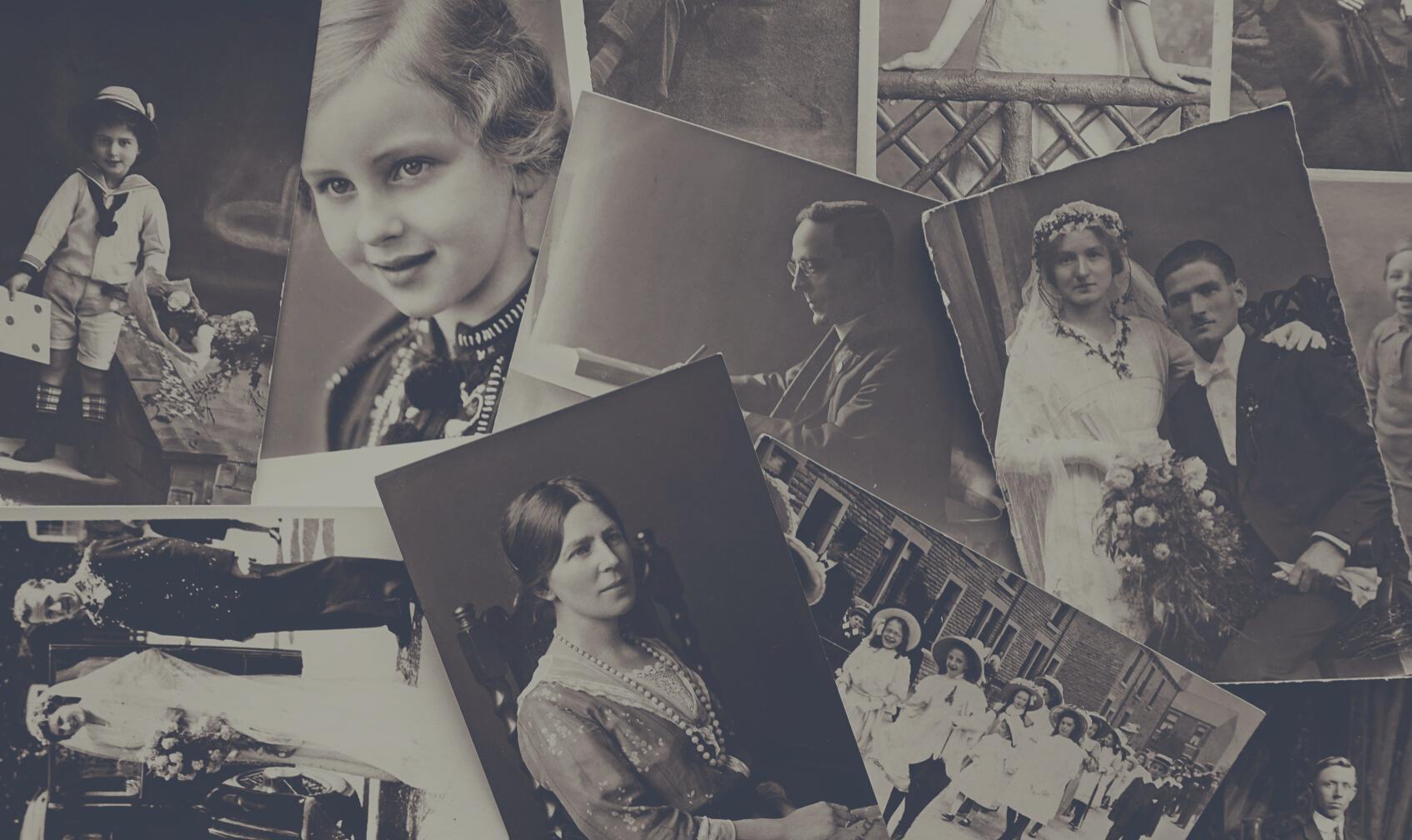
Among his achievements, Granger was the first Black person to serve as President of the National Conference of Social Welfare and the International Conference for Social Work. He also had been vice president of the American Association of Social Workers, honorary president of the International Council on Social Welfare and a member of the board of directors of the Council on Social Work Education. 14
Upon retiring from the National Urban League in 1961, he served for a number of years as a visiting professor of sociology at Princeton, Loyola, Tulane, and Dillard Universities. Lester Granger died in Alexandria, Louisiana, on January 9, 1976 at the age of 80. 15, 16
Resources:
1 https://socialwelfare.library.vcu.edu/eras/granger-lester-b/
2 https://www.blackpast.org/african-american-history/granger-lesterblackwell-1896-1976/
3 https://lestergrangerblackwell.weebly.com/
4 https://www.blackpast.org/african-american-history/granger-lesterblackwell-1896-1976/
5 https://lestergrangerblackwell.weebly.com/
6 https://www.blackpast.org/african-american-history/granger-lesterblackwell-1896-1976/
7 ibid.
8 ibid
9 ibid
10 https://kinginstitute.stanford.edu/encyclopedia/granger-lester-blackwell
11 https://www.blackpast.org/african-american-history/granger-lesterblackwell-1896-1976/
12 https://socialwelfare.library.vcu.edu/eras/granger-lester-b/
13 https://www.blackpast.org/african-american-history/granger-lesterblackwell-1896-1976/
14 https://socialwelfare.library.vcu.edu/eras/granger-lester-b/
15 https://www.blackpast.org/african-american-history/granger-lesterblackwell-1896-1976/
16 https://socialwelfare.library.vcu.edu/eras/granger-lester-b/
20 | NJFOCUS •March 2022
Black History Month






THE O F S O C I A L W O R K V I R T U A L C O N F E R E N C E M A Y 1 - 2
FUTUR SHAPE
T H E R E A L I T Y O F
Virtual Reality in Social Work
Many of us have heard about virtual reality (VR), typically as it relates to gaming. However, social work futurists have developed programs and tools to use in the field—in private practice, advocacy, and education.


Leveraging years of discussions with social workers invested in this space and collaboration with world renowned virtual reality creators, NASW-NJ is proud to bring VR to our 2022 Virtual Annual Conference. Attendees will walk through several immersive VR situations. A panel of clinicians and developers will process the experience and discuss the ethical and cultural implications of VR in the profession and the clients and communities we serve.
Among our panelists is Cortney Harding, founder of Friends with Holograms, an award-winning VR agency specializing in high-end, cinematic immersive training experiences. Friends with Holograms helped build a first of its kind voice-activated VR scenario for use in child welfare training that allowed users to interview a family in crisis, with multiple branches and outcomes. According to Harding, “this child welfare application led to a 31% decrease in caseworker turnover in one state [that tested the program]. In general, studies have shown that VR leads to 75% increase in learning quality and retention; 40% reductions in training time; and 70% performance improvement.”
Read the full interview with Cortney Harding.
Watch a 3-minute video about the child welfare VR project.
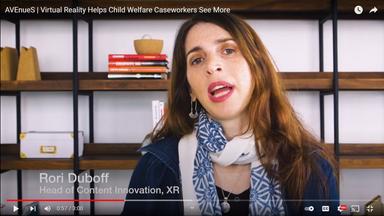
• Virtual Reality Helps Child Welfare Caseworkers

Annual Conference










NJFOCUS • March 2022 | 23 shaker movers champion difference maker
Annual Conference
THANK YOU TO OUR YEAR-ROUND SPONSORS
A D V O C A C Y I N A C T I O N

NASW-NJ took the following actions in Trenton over the past two months.

BILL NUMBER
TITLE/DESCRIPTION
B e h a v i o r a l H e a l t h
E s t a b l i s h e s C o r e B e h a v i o r a l H e a l t h C r i s i s S e r v i c e s S y s t e m
S
S
STANCE TESTIMONY
S u p p o r t e d
R e a d o u r t e s t i m o n y
W o r k i n g C l a s s F a m i l i e s A n t i - H u n g e r A c t - r e q s c h o o l p r o v i d e f r e e b r e a k f a s t s & l u n c h e s
E s t a b l i s h e s P r e s c r i p t i o n D r u g A f f o r d a b i l i t y B o a r d
E c o n o m i c J u s t i c e H e a l t h C a r e P u b l i c S a f e t y
R e q u i r e s c u l t u r a l d i v e r s i t y a n d i m p l i c i t b i a s t r a i n i n g b e i n c l u d e d i n p o l i c e b a s i c t r a i n i n g c u r r i c u l u m
R e q u i r e s c h i e f l a w e n f o r c e m e n t o f f i c e r o f m u n i c i p a l p o l i c e d e p a r t m e n t s t o h o l d t w o c o m m u n i t y r o u n d t a b l e s o n p o l i c e r e l a t i o n s e a c h y e a r

E s t a b l i s h e s s t a n d a r d s f o r B a t t e r e r s ' I n t e r v e n t i o n P r o g r a m s i n d o m e s t i c v i o l e n c e c a s e s
R a c i a l & S o c i a l J u s t i c e
R e q u i r e s m e m b e r s , o f f i c e r s , a n d e m p l o y e e s o f L e g i s l a t u r e t o u n d e r g o i m p l i c i t b i a s a n d c u l t u r a l c o m p e t e n c y t r a i n i n g
M i n o r i t y , W o m a n , & U n d e r s e r v e d F a r m e r R e g i s t r y - D i r e c t D e p a r t m e n t o f A g r i c u l t u r e e s t a b l i s h
S u b s t a n c e U s e / A d d i c t i o n s
A u t h o r i ze s e x p a n d e d p r o v i s i o n o f h a r m r e d u c t i o n s e r v i c e s t o d i s t r i b u t e s t e r i l e s y r i n g e s a n d p r o v i d e c e r t a i n s u p p o r t s e r v i c e s t o p e r s o n s w h o u s e d r u g s
i n t r a v e n o u s l y
S u p p o r t e d
S u p p o r t e d
S u p p o r t e d
R e a d o u r t e s t i m o n y
S u p p o r t e d S u p p o r t e d
R e a d o u r t e s t i m o n y
S u p p o r t e d
R e a d o u r t e s t i m o n y
S u p p o r t e d
S u p p o r t e d
3 1 1 / A 2 0 3 6
S
1 6 7 7 / A 2 3 6 8
3 2 9 / A 1 7 4 7
1 7 2 0
2 6 5 4
2 2 9
1 0 1 3 / A 1 7 1 9
7 7 2 / A 1 9 2 9 S 3 0 0 9 / A 4 8 4 7
A
A
A
S
S
Advocacy in Action
P r o f e s s i o n a l / L i c e n s i n g I s s u e s
R e v i s e s r e q u i r e m e n t s a n d p r o c e s s f o r t e m p o r a r y c o u r t e s y l i c e n s e s a n d c e r t i f i c a t e s i s s u e d b y S t a t e B o a r d o f E x a m i n e r s , N J B o a r d o f N u r s i n g , a n d o t h e r p r o f e s s i o n a l a n d o c c u p a t i o n a l l i c e n s i n g b o a r d s t o n o n r e s i d e n t m i l i t a r y s p o u s e s
R e q u i r e s p r o f e s s i o n a l b o a r d s t o i s s u e l i c e n s e s f o r v e t e r a n s w i t h g o o d s t a n d i n g l i c e n s e o r c e r t i f i c a t i o n i n a n o t h e r j u r i s d i c t i o n u n d e r c e r t a i n c i r c u m s t a n c e s
S u p p o r t e d
R e a d o u r t e s t i m o n y
S u p p o r t e d
Over the past two months, NASW/NASW-NJ signed-on to the following joint statements.

S t a t e o f t h e U n i o n L e t t e r f r o m C a r e C a n ' t W a i t C o a l i t i o n ( p u b l i s h e d l e t t e r no t y e t a v a i l a b l e )
E n a c t o m n i b u s F Y 2 0 2 2 a p p r o p r i a t i o n s l e g i s l a t i o n i n c l u d i n g a l l t w e l v e s u b c o m m i t t e e b i l l s t o a d e q u a t e l y f u n d h u m a n n e e d s p r o g r a m s
F a i r d i s t r i c t s n e w j e r s e y c o a l i t i o n o n r e p u b l i c a n a n d d e m o c r a t i c p u b l i c r e l e a s e o f l e g i s l a t i v e m a p s a n d d i s a p p r o v a l o f l a c k o f p r e s e n t a t i o n o f r e s i d e n t s o f c o l o r i n f a i r n u m b e r o f m a j o r i t y - m i n o r i t y d i s t r i c t s
U r g e U S D O E t o i m p l e m e n t a n I n c o m e - D r i v e n R e p a y m e n t ( I D R ) W a i v e r f o r a l l f e d e r a l s t u d e n t l o a n b o r r o w e r s
E x t e n s i o n o f t h e C h i l d T a x C r e d i t i n t h e B u i l d B a c k
B e t t e r A c t
R e q u e s t t o S u p p o r t & S p o n s o r S 3 2 9 / A 1 7 4 7 ,
E s t a b l i s h e s P r e s c r i p t i o n D r u g A f f o r d a b i l i t y B o a r d
C h a l l e n g i n g N o S u r p r i s e s A c t I n t e r i m F i n a l R u l e s
S u p p o r t B u i l d B a c k B e t t e r w i t h c h i l d c a r e a n d p a i d l e a v e p r o v i s i o n s ( p u b l i s h e d l e t t e r u n a v a i l a b l e )
F e d e r a l N J C h a p t e r
C a r e C a n ' t W a i t C o a l i t i o n
F e d e r a l
N J
C h a p t e r
C o a l i t i o n o n H u m a n N e e d s
S t a t e
F e d e r a l
N J C h a p t e r
N J
C h a p t e r
C o a l i t i o n o n H u m a n N e e d s
S t u d e n t B o r r o w e r P r o t e c t i o n C e n t e r
F e d e r a l
N J
C h a p t e r
N J
S t a t e
F e d e r a l
F e d e r a l
C h a p t e r
N a t i o n a l
N J
C h a p t e r
A B C C o a l i t i o n
N J f o r A f f o r d a b l e D r u g s C o a l i t i o n
M e n t a l H e a l t h P r o f e s s i o n a l O r g a n i z a t i o n s
T h e C a r e C a n ' t W a i t C o a l i t i o n
S 1 1 0 4 / A 2 9 5 6 2 / 1 7 / 2 0 2 2 A 3 1 5 2 / 1 0 / 2 0 2 2 2 / 9 / 2 0 2 2 2 / 9 / 2 0 2 2 1 / 3 1 / 2 0 2 2 1 / 2 8 / 2 0 2 2 1 / 2 5 / 2 0 2 2 1 / 6 / 2 0 2 2
TOPIC T A B L E C O N T I N U E D
DATE TARGET NASW SIGN-ON LEAD ENTITY
BILL
TITLE/DESCRIPTION
NUMBER STANCE TESTIMONY
Advocacy in Action
February 16, 2022
February 24, 2022
NASW-NJ Opposes Any Efforts to Redefine Child Abuse to Include Gender Affirming Care; Stands in Solidarity with Trans Community in Texas
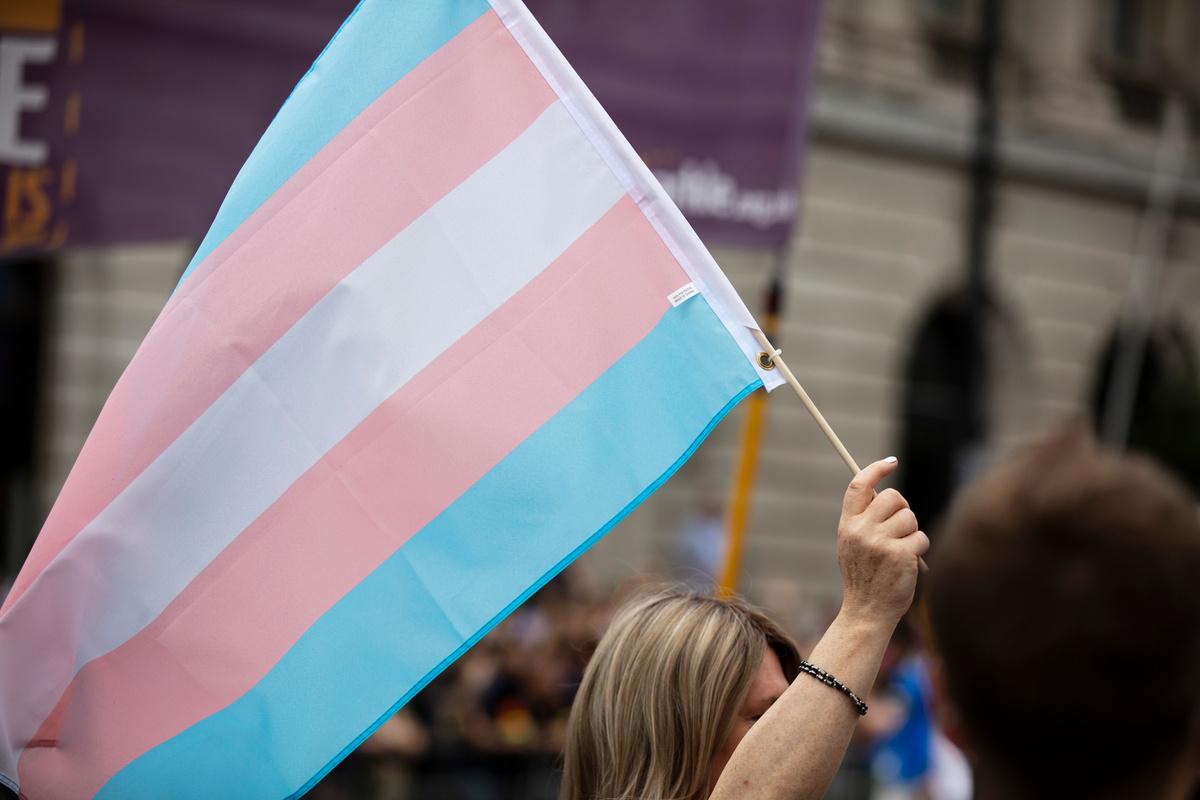
Read the article: bit ly/NASW-NJInsiderNJArticle
February 4, 2022
Dir. of Advocacy & Comm., Jeff Feldman, appears on NJ Spotlight News; Provides commentary on bill requiring municipal police departments to host two community roundtables annually


Watch the video: bit ly/youtubeRoundtableVideo
January 20, 2022
'A real crisis’: License backlogs in some states are preventing health care workers from seeing patients

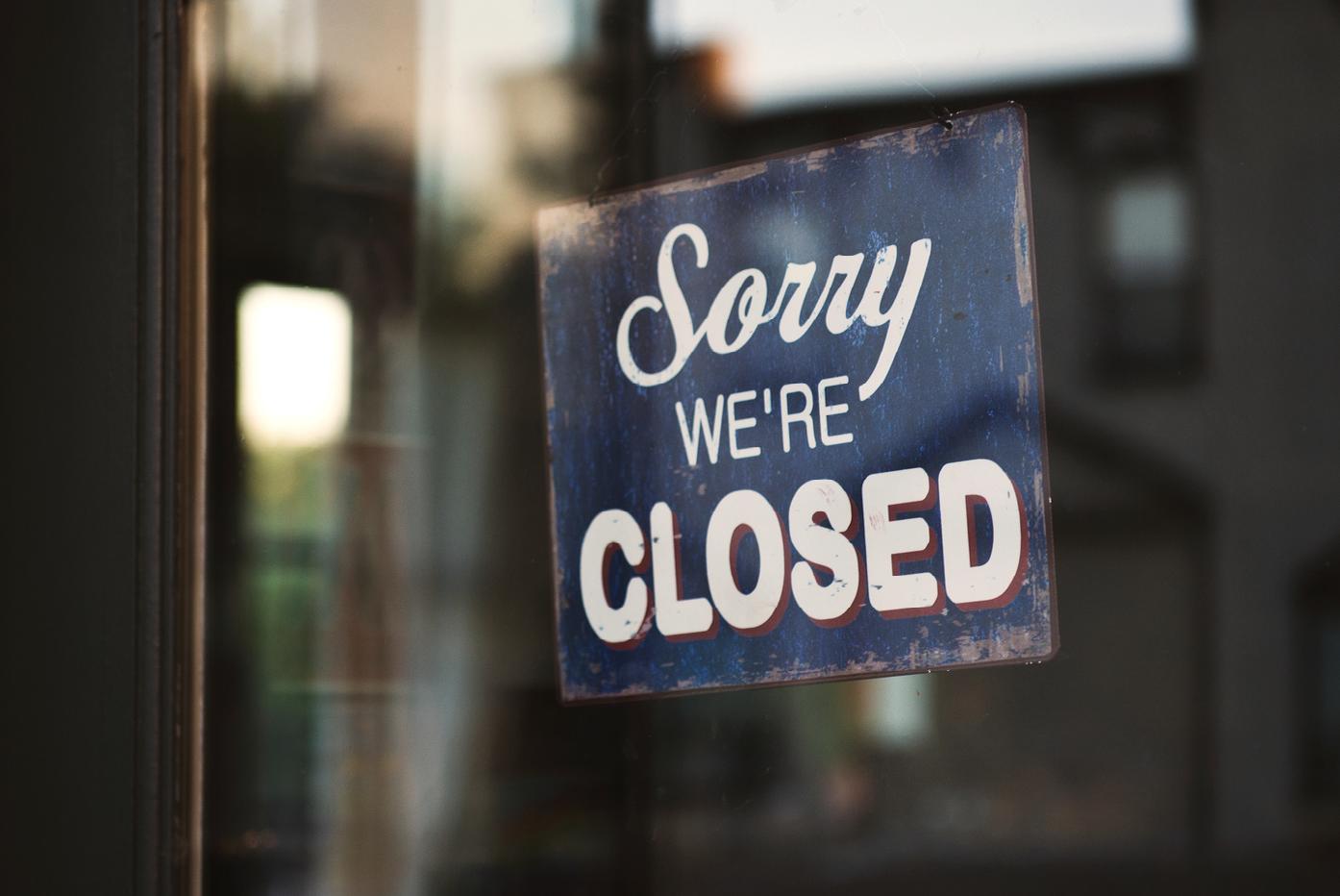
Read the article: nbcnews.to/36V7Kzx

January 11, 2022
Read the article: bit.ly/NASW-NJInsiderNJArticle2
Senate Failure to Pass Voting Rights Legislation Means Less Representation for Marginalized Populations

Read the article: bit ly/NASW-NJAPNews
'Crisis situation': Mental health services in NJ stretched thin as pandemic boosts demand
Read the article: njersy co/3pCbMTT
February 12, 2022 9-8-8 Crisis Health Line and S-311 Address Critical Community Need: Division of Consumer Affairs Must Act Now to Ensure Successful Implementation

December 30, 2021
Syringe programs save lives in New Jersey

Read the article: bit.ly/NASW-NJSyringeProgramArticle


the links to
NASW-NJ in the headlines.
Click
see
Advocacy in Action
THE LATEST FROM THE FIELD

M E M B E R M I S S I V E S
Creatively Engaging Survivors of Domestic Violence and Their Children in Clinical Work
By Anne Marie M. Ramos, LCSW, RPT-S
“Children traumatized by domestic violence […] have enhanced and more effective therapeutic outcomes if their caregivers were dynamically involved in treatment."
In my 39 years of working with children, teens, and families, I have noticed when I encourage more involvement by parents in a dynamic way in treatment with their child(ren), premature termination was reduced, client satisfaction increased, and goals set were more efficiently met. In a review of the literature and my own subsequent training I found many parent-led, evidence-based therapies were highly effective. These are therapies where the parent is trained to either provide a primary therapy or a therapeutic intervention. For example, one of these therapies, is Filial Therapy where the parent is trained to provide Child Centered Play Therapy to their child. Another is Theraplay where the parent learns to do attachment-based therapeutic play activities with their child. Child Management Training is a highly efficacious parenting method to help a child with conduct disorders. Some research studies indicate certain presenting problems are better served by a family or parent/child approach such as in the case of separation anxiety or anorexia. Children traumatized by domestic violence, I discovered, could also have enhanced and more effective therapeutic outcomes if their caregivers were dynamically involved in treatment.
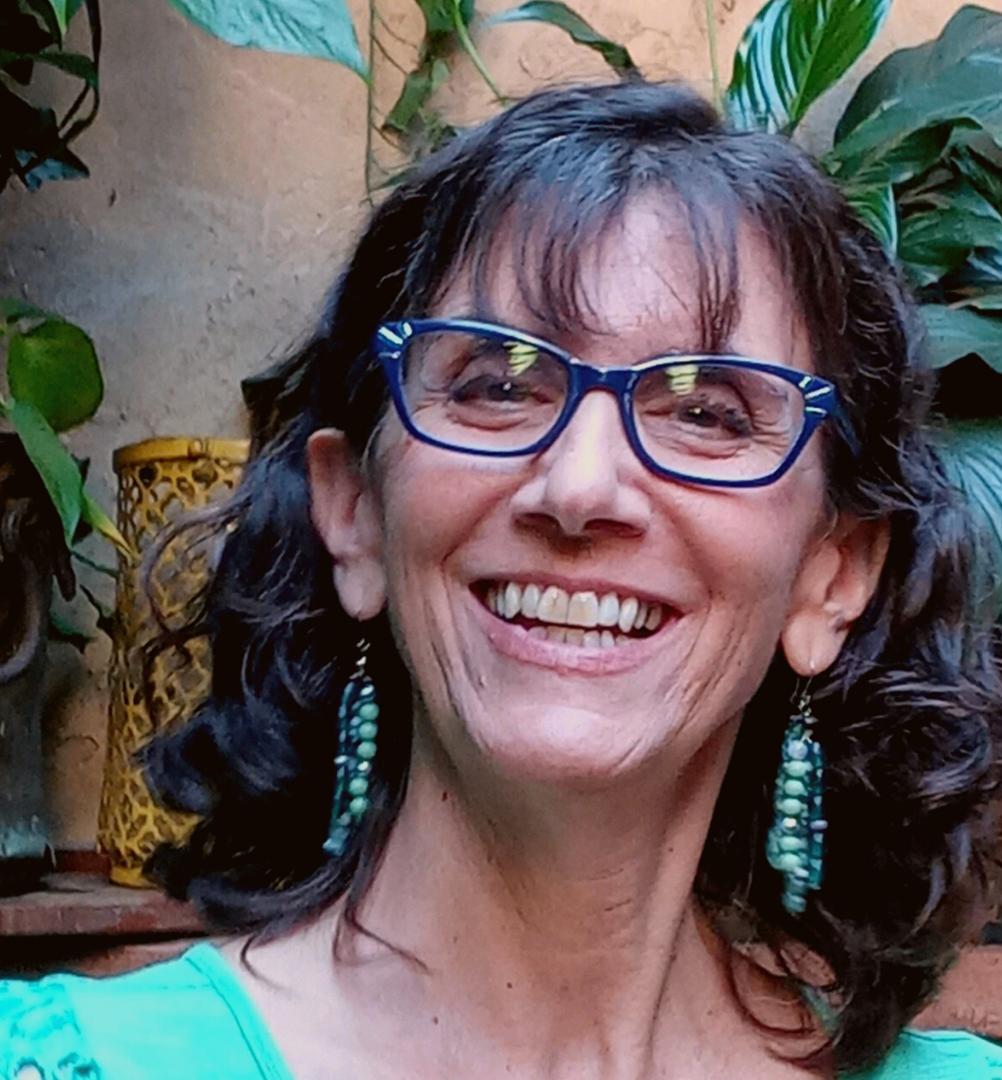
Trauma informed research indicates children who have a consistent and strong caregiver bond are more resilient to trauma. Developing this resilience through strengthening the bond between parent survivors and their child(ren) is something I have been promoting for more than 25 years. During this
time, I have had the opportunity to be involved as a provider, clinical supervisor, and coordinator of programs to help children and families exposed to domestic violence. In this work, I have observed that parent survivors’ concern for their children’s mental health needs greatly exceeds the concern for their own needs. They prefer to “start” by making sure their children are “OK.”
To address this, and to strengthen the parent/child relationship, I began either creating, repurposing, or using existing resources to provide trauma informed, play-based family interventions to help the family initially begin to process their thoughts and feelings about the trauma together. In these interventions, the parent survivors take an active role or co-facilitate with the clinician. Family feelings thermometers, use of creative arts, game play therapy, and bibliotherapy are among some of the tools I have found consistently effective in helping families with children in trauma processing. The family work not only helps the family adjust to the trauma but also increases the parents’ awareness of their children’s feelings. This greater awareness often leads to greater sensitivity to the children which, in turn, increases bonding.
I have also observed that parent survivors often lack effective limit setting skills. Why is this? One possible explanation is that much of their and their children’s energy and skills during the period of abuse was needed to focus on appeasing the abuser to keep themselves as safe as possible.

NJFOCUS • March2022 | 29
Domestic Violence
With the absence of the abuser via a restraining order or other means, the children may feel freer to be “themselves.” They may, for example, express negative emotions more openly which the parents may be at a loss to address. Placating negative emotions, as they were used to doing with the abuser, may be inadequate to address the emotions their children are presenting. The children may also show defiant or disruptive behaviors due to their own difficulties in adjustment or due simply to the fact that they no longer must walk around in fear. Parent survivors may be unused to these new behaviors and do not possess a “toolbox” of strategies for child management. Helping survivors through teaching these skills can be empowering for parents as well as the family system. Children feel safer when their parents are empowered and this, too, facilitates bonding.

I am excited to announce that I will be providing further details on how to implement creative family processing, as well as child management training to survivors, in an upcoming workshop at the NASWNJ Virtual Annual Conference. The workshop is entitled Healing After Domestic Violence: Working Creatively with Caregivers and Children. If you’re interested in learning more about this topic, I hope you’ll join me there.
About the Author:
Anne Marie M Ramos, LCSW, RPT-S serves as Director of Children’s Services for Jewish Family and Children’s Service in Passaic, N.J. She has worked for nearly 4O years with families and children/adolescents as a clinical social worker and supervisor, and has provided workshops for CE credits nationally on topics related to working with this population. She has an extensive background in play therapy and is a Registered Play Therapist – Supervisor through the Association for Play Therapy and has recently become a Certified Autplay Therapy Provider. She is the author of the book, “Parents as Healers: Bringing the Caregiver into the Healing Process Through Play and Home-Based Strategies.”
30 | NJFOCUS •March 2022
Domestic Violence
My first encounter with a mental health practitioner to discuss issues related to being a transsexual was in 2007. Two years earlier I had started gender-affirming hormones and legally changed my name and sex through the CA Court System, and one year earlier I had undergone “top surgery” (aka chest reconstruction or double mastectomy). That encounter in 2007 was to be approved for “bottom surgery” (aka Phalloplasty or Metoidioplasty) and the clinician my HMO insurance provider scheduled me with was “LGBT-friendly,” which turned out to mean she was a lesbian but had zero knowledge about gender transition or gender-affirming surgeries. We met three times. The first session was a typical intake session. The second session consisted of me educating her on the various types of surgery, the pros, and cons of the surgeries, and the availability of surgeons around the country. The third session was her informing me that a recommendation for surgery was going to be submitted to the committee that oversaw the process for the HMO system.
Many of you might be asking yourself, “How did he access hormones and surgery without “getting a letter” from a clinician?” While living in San Francisco, I was able to access a physician who had been working with transgender patients for 12 years and did not require a biopsychosocial assessment
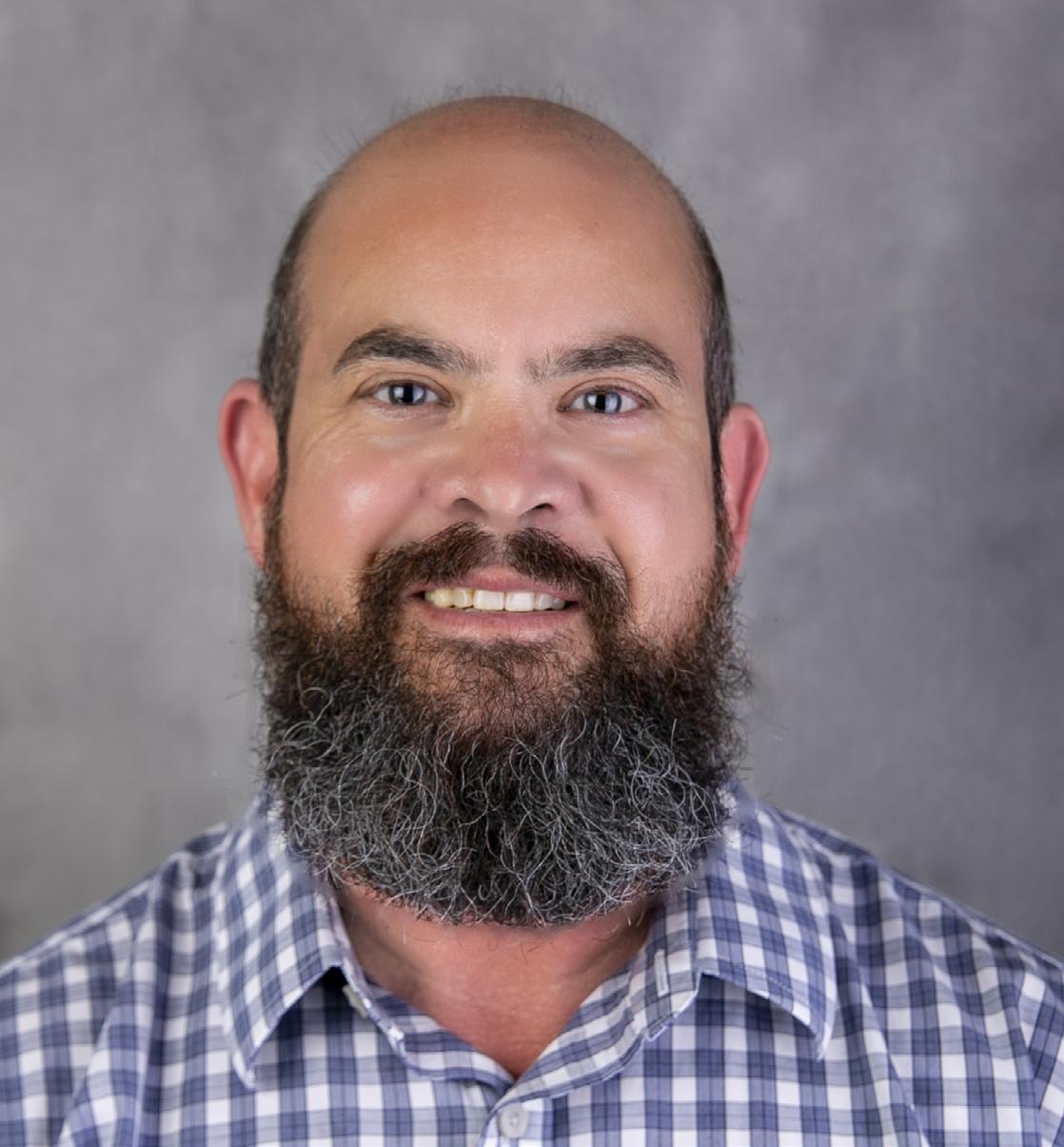
Service Provision with Transgender, Transsexual, Nonbinary, and Other Gender Diverse Populations
By Zander Keig, LCSW
“In hindsight, I wish I had been working with a Gender Therapist who would have assisted me with navigating a very unfamiliar and challenging social transition from dyke to dude.”
prior to prescribing gender-affirming hormones. I took that prescription sheet to my primary care provider at the Veterans Affairs Outpatient Clinic who, after consulting with an endocrinologist for 20 minutes, transferred my prescription into the VA Pharmacy System. I was handed off to the Injection Clinic RN to receive my first intramuscular injection that day. At the time I felt fortunate because I knew many others who had waited months or even years to access medical transition, but in hindsight, I wish I had been working with a Gender Therapist who would have assisted me with navigating a very unfamiliar and challenging social transition from dyke to dude. It’s one thing to be called “sir” as a masculine woman more often than seems reasonable, but it's a whole other thing to live in the world as a man versus a woman. And, it turns out, it’s nothing like my female family members, friends, and women’s studies professors alluded to. Having a psychotherapist to talk with would have made the whole process more manageable.
For those of you who are less familiar with trans social care, the letter I am referring to is often written by a licensed mental health clinician based on a World Professional Association for Transgender Health (WPATH) Standard of Care recommended best practice for working with individuals seeking gender-affirming hormones and/
NJFOCUS • March2022 | 31 Gender Diversity
or surgeries. WPATH recommends that individuals seeking these services complete a comprehensive biopsychosocial assessment with a provider to ascertain their readiness and preparedness to initiate and navigate such life-altering changes. Too often this step is skipped, and like in my case, could have benefitted the client along their journey. Without a safe residence and supportive network to call upon, many trans people become isolated during the early stage of their gender transition. And with the alarming suicidal ideation statistics available, avoiding social isolation is paramount during this process.
Working with gender diverse clients is a rewarding yet demanding endeavor as the landscape of who is included under the “Transgender Umbrella” expands and the accepted parlance is ever-changing. The notion of many identities all configured under an umbrella is a wonderful visual image and an easy way to introduce the topic of transgenderism, but it does not begin to truly describe the differences within that diverse community, which may lead some to believe that being trans or nonbinary is easily describable and relatable. It is not. And, there are many competing and conflicting theories attempting to capture the dominant paradigm of thought for who trans people are and how trans people want to be treated. We are not a monolith.
We are very diverse—as any group of people is. Providing Culturally and Linguistically Appropriate Services (CLAS), therefore, mandates continuous engagement with professional development education and training programs.
On May 1 st I will be leading a workshop during the NASW-NJ Shape the Future of Social Work Virtual Annual Conference focused on how to be a Culturally and Linguistically Appropriate Service provider with transgender, transexual, nonbinary, and other gender diverse populations. I will be discussing the CLAS Standards, issues related to poor health literacy, the shifts, and struggles with terminology, continuing education resources, the Multi-Modal aspects of a gender transition, and some contemporary issues to be aware of. I look forward to seeing you there!

About the Author:
Zander Keig, LCSW is the NASW 2020 Social Worker of the Year, CA NASW 2018 Social Worker of the Year, and WPATH 2020 Harry Benjamin Distinguished Educator of the Year.
32 | NJFOCUS •March 2022 Gender Diversity
ADDRESSING INCOME MYTHS
Most social workers enter the field expecting they will not be paid well. “We are in it for the outcome, not the income” is a motto often said to demonstrate the passion and love social workers have for helping others and serving our clients and communities. But this saying creates an unhelpful binary thought that social workers should value the work over the pay. And while the social work profession is highly valued by many in our society, it is often not respected. There are many other helping professions—including doctors and, in more recent years, nurses and teachers—that are compensated well and yet never questioned about their commitment or passion for their work. If we as social workers continue to believe this rhetoric— that we love the work and therefore do not need to be paid well—our profession will continue to be undervalued and underpaid.
This mindset is not only hurting ourselves and our profession, but also the clients and communities we serve. As social workers, we are intimately aware of the impact low wages have on people, from food and housing insecurity to mental health and esteem issues. Not being compensated well for our work can lead to stress and burnout, which contribute to high turnover rates in the social work field and leave our clients and communities lacking services. Therefore, it is truly our ethical duty to advocate for higher wages for social workers.
In It for More than the Outcome: The Truth About Social Work Salaries
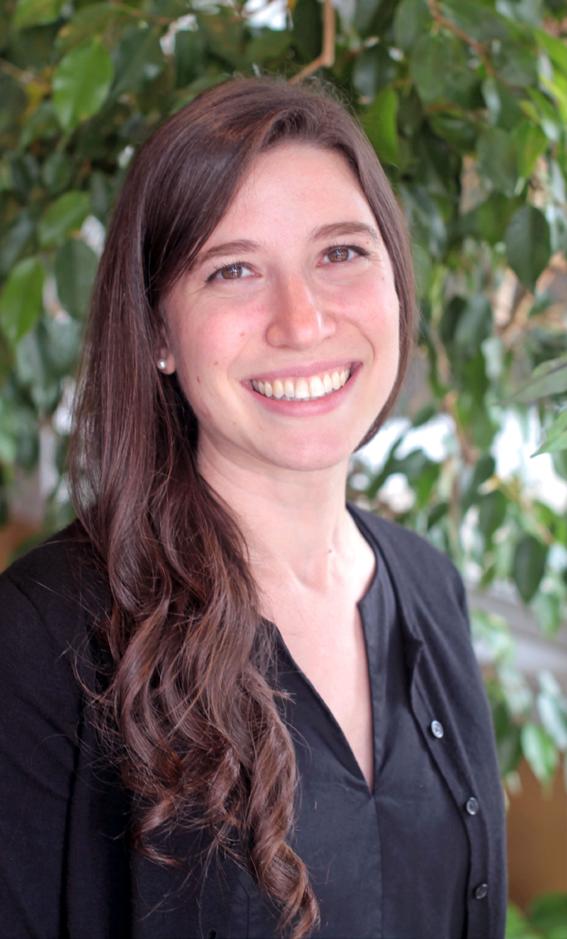
Part 1 of 2
By Matthew Sato, MSW Candidate and Hannah Korn-Heilner, LSW
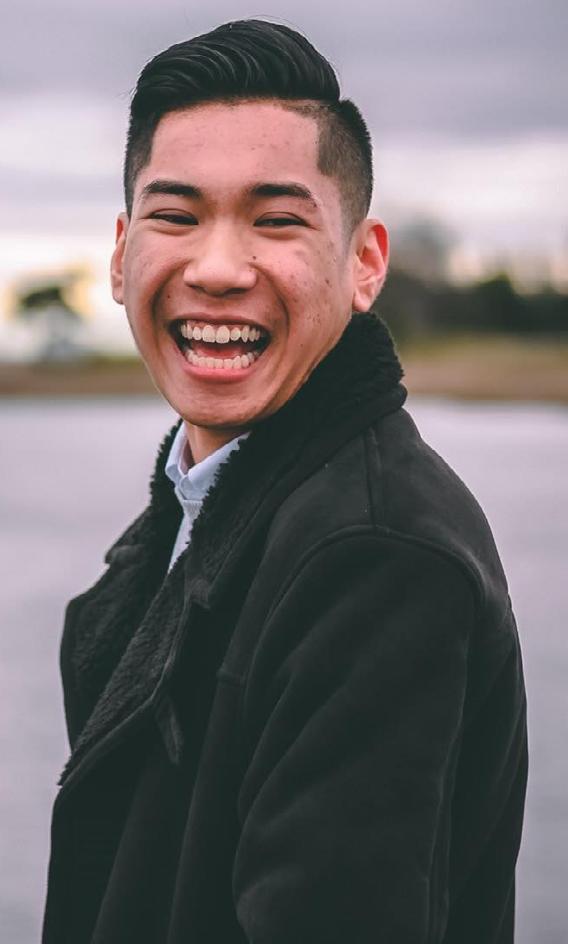
At the end of the day, this is our job and livelihood and how we support ourselves and our families financially. Thus, we must move beyond our existing binary thinking to declare we are in it for the outcome and the income.
COMPENSATION SNAPSHOT
According to an informal salary survey conducted in 2020 by NASW-NJ, the median salary range of full- and part-time LSW level social workers was $50,001 - $60,000, while for full and parttime social workers with an LCSW, the median salary range was $60,001 to $70,000. This places social work on the lower end of median health professional salaries; other helping and mental health professions, such as nursing and psychology, earn upwards of $89,000 to $100,000 on average. Keeping in mind our state’s high-cost-of-living, which is reflected in worker salaries, a study of the social work workforce conducted in 2017 revealed that nationally, social workers with an MSW earn an average income of just $44,917. This is slightly less than the median entry level salaries of MSW’s in New Jersey. These salaries are not reflective of the amount of time, passion, and sacrifice social workers make in their education and daily work.
NJFOCUS • March2022 | 33
Professional Issues
“If we as social workers continue to believe this rhetoric—that we love the work and therefore do not need to be paid well—our profession will continue to be undervalued and underpaid."
WHAT IS THE FINANCIAL COST TO BECOME A SOCIAL WORKER?
Added to the physical and emotional burdens associated with social work is the crippling burden of student loans and other education-related debt. Let’s engage in a little thought experiment. Attaining a Master of Social Work degree in New Jersey can cost upwards of $10,000 per semester, for a total tuition expense of $40,000 for a traditional two-year MSW program. This excludes any costs accrued during the pursuit of a fouryear baccalaureate degree. Adding typical student housing costs of $10,000 annually brings this cost to around $50,000.
Unfortunately, these figures do not factor in common expenses, such as those for textbooks, campus fees, and general living expenses, which can easily add another $10,000, bringing the estimated cost associated with obtaining an MSW while maintaining a basic style of life to a staggering $60,000. Further complicating matters is the opportunity costs associated with pursuing a social work degree—MSW students are required to commit 14 to 24 hours per week interning, often unpaid, which restricts their ability to work a job during their education, thus severely limiting earning potential while pursuing the MSW degree. Taking out student loans is the most common way to defer the majority of these expenses.
Unfortunately, predatory lending practices over the past couple of decades have only added to the financial burden. Assuming a graduating MSW student has accrued $60,000 in debt, and also assuming that this debt was paid using unsubsidized loans, the interest expense associated with the loan further adds to the debt. Using a loan calculator, and assuming an unsubsidized loan interest rate of 5.28%, and a loan term of 10 years, the original $60,000 debt actually costs the debtholder a whopping $82,632. The result is a soul-crushing $689 per month in loan repayments. Negotiating lesser payments or longer repayment terms serve only to further increase the total debt burden.
Upon graduating, the social worker then becomes responsible for maintaining a professional license, including biennial licensing fees and continuing education expenses. Taking all this into consideration, a push for higher salaries is a necessity for our profession.
In part 2 of this article, we’ll discuss salary transparency and ways social workers can advocate for better salaries and debt relief. Look for it in the May issue of FOCUS Magazine.
References:
1 NASW Social Work Snapshot. 2020. Available at https://naswnj. socialworkers.org/Portals/18/Documents/News/2020%20nasw%20sw%20 snapshot_final.pdf?ver=rSqU7iIAGv2mLa61Qu-35g%3d%3d
2 O*NETOnLine. (2021, November 16). O*NETOnline. Retrieved January 24, 2022, from https://www.onetonline.org/
3 https://www.socialworkers.org/LinkClick. aspx?fileticket=C0r5P1zkMbQ%3d&portalid=0
4 Fay, M. (2021. December 16). Dorm vs. apartment: Which is cheaper. Debt.org. Retrieved January 24, 2022, from https://www.debt.org/ students/dorm-vs-apartment/
About the Authors:
Matthew Sato, B.S., is an MSW student at Rutgers University - New Brunswick, anticipating graduation in 2023. He is a Filipino-American and is invested in increasing Asian-American representation in the social work field. Matt’s interests lie in Macro social work, specifically the areas of Management and Policy. He is a nontraditional BSW student, possessing a B.S in Business Studies
Hannah Korn-Heilner, LSW, is a macro social worker, passionate advocate, and chair of the NASW-NJ Union Unit. She works as the Policy and Outreach Associate for the nonprofit organization, Advocates for Children of New Jersey. She obtained her MSW with a concentration in Management and Policy from Rutgers University and previously worked in youth development in Paterson, NJ.
34 | NJFOCUS •March 2022
Professional Issues
“Lockdown! Lockdown! Lockdown!” a voice over the loudspeaker blares through the PA system. “Lockdown! Lockdown now!”
The teacher runs to the classroom door to clear the hallway of any kids, then locks the door, turns out the lights, and runs to her hiding place, all while telling the kids to move quickly. Quick, quick, quick!

Some children open their desks and take out bags of rocks to throw at the potential shooter. Others grab baseball bats as they run toward their hiding places. Then they wait. Tension fills the air.
Several minutes later, the voice returns over the PA—go about your business. This was just a drill.
Occurrences like this happen regularly in schools across our nation. New Jersey mandates there be at least one school security drill per month during the school year. Our collective reaction to the rise in school shootings has been to put children on high alert, instructing them to arm themselves, defend themselves, and hide—sometimes all at the same time. The result has been a paradigm shift among children nationwide: kids no longer feel safe in
Active Shooter Drills Traumatize Students in the Name of Safety and Preparedness
By Nancy Kislin, LCSW
schools. And lockdown drills are contributing to this experience as much as, if not more than, actual incidents of gun violence.
Of course, we want our children to be prepared in instances of extreme danger. And a child needs to learn resilience, especially in times of crisis. But the way we are currently conducting school safety drills is mentally and emotionally damaging to kids and highly ineffective in many cases.
In one high school, Isabelle, a sophomore, left her biology class to go to the bathroom. On her way back to class, she heard the alert: “Lockdown! Lockdown!” Isabelle ran to the nearest classroom, but the door was already locked. She ran to other classrooms, screaming let me in, but the teachers did what they were trained to do—not open the door after the initial clearing of the hallway unless they received the “all clear.” When this alert ended and was revealed to be a drill, teachers found Isabelle in a fetal position on the floor, crying “I don’t want to die… please don’t let me die.”
Students throughout our state have been forced to endure drills like this—drills that simulate active shooter situations, including the use of props like fake blood and role play where students are asked to
NJFOCUS • March2022 | 35 Public Safety
“The way we are currently conducting school safety drills is mentally and emotionally damaging to kids and highly ineffective in many cases.”
physically intervene against a fake shooter. Ensuring children understand and take active shooter situations seriously does not require traumatizing them in the process. It’s simply not acceptable!
I am the leader of a growing movement in our country to rethink and reform the way American schools approach drills intended to prepare students for mass shooting events. In the aftermath of the 2018 tragedy at Marjory Stoneman Douglas High School in Parkland, Florida, I interviewed hundreds of kids, parents, and educators to better understand what was happening in schools. Based on this research, I developed strategies to help children cope with the stress and trauma associated with mass violence. I have also developed protocols for schools to reduce the level of trauma created during lockdown drills.
I also launched the “Just Call It a Drill” campaign. Its mission is to advocate and educate law makers, teachers, and school officials that there is a safer, kinder, and more effective way to conduct school safety drills. On January 6, 2022, my efforts bore fruit when Governor Murphy signed into law the first legislation in our country (A5727/S3726) enacted to ensure student well-being during school security drills. The new law prioritizes the mental health and well-being of New Jersey’s schoolage children by creating reasonable processes and procedures for conducting active shooter drills.
Under the provisions of the new law, school security drills:
• Must not expose students to content or imaging that is not developmentally or age appropriate.
• Must be paired with trauma-informed approaches to address any student inquiries or concerns which may arise as a result of school security drills.
• Must not include the use of fake blood, real or prop firearms, or the simulations of gun shots, explosions, or other sounds or visuals that may induce panic or a traumatic response from a student or school district employee.
• May require a student to role play as a victim
but may also include first aid training in which students participate.
• Must be accessible to students with disabilities and mental health conditions and provide all necessary accommodations for these students.
• School districts must provide written notification to the parent or guardian of a student enrolled in the district following completion of a school security drill and annually track data on such measures and report the data to the commissioner.
This is an amazing step forward and I am extremely grateful to our state legislature and Governor Murphy for enacting this law. But there is still much work to be done to address the scourge of gun violence that plagues our schools. My deep belief that each of us shares in the responsibility to improve our world, combined with my social work values, continue to fuel me in the fight for our children’s well-being. I welcome anyone interested to join our movement. You can learn more on my website, nancyjkislin.com
About the Author:
Nancy Kislin, LCSW is a leading expert in helping parents, educators, and communities cultivate resilience in kids in an age of uncertainty. She is the author of the book “Lockdown: Talking to Your Kids About School Violence.” Nancy works with school boards, state governments, mental health professionals, and law enforcement to change the trauma-inducing practices associated with school lockdown drills.
36 | NJFOCUS •March 2022
Public Safety

ON BECOMING A SOCIAL WORKER
by Olivia Monahan, Monmouth University BSW Class
of 2022
When people discuss what sparked their interest in the social work field, many people mention issues they saw that needed solutions, their drive to create change, and the support system that raised them to get there. For me, I saw holes in the tapestry of solutions currently available, and while I had a good support system, it was the people that told me to do something other than social work that fueled my fire.
I knew I wanted to help people at a young age. At thirteen, my mom passed away. With just my dad and I left to go on, I had to turn to external sources for support. The guidance counselor who helped me through the grieving process—without her knowing—ignited something in me and became a lifelong friend. This spurred me to learn more about mental health, what it meant to me, and what I could do for others.
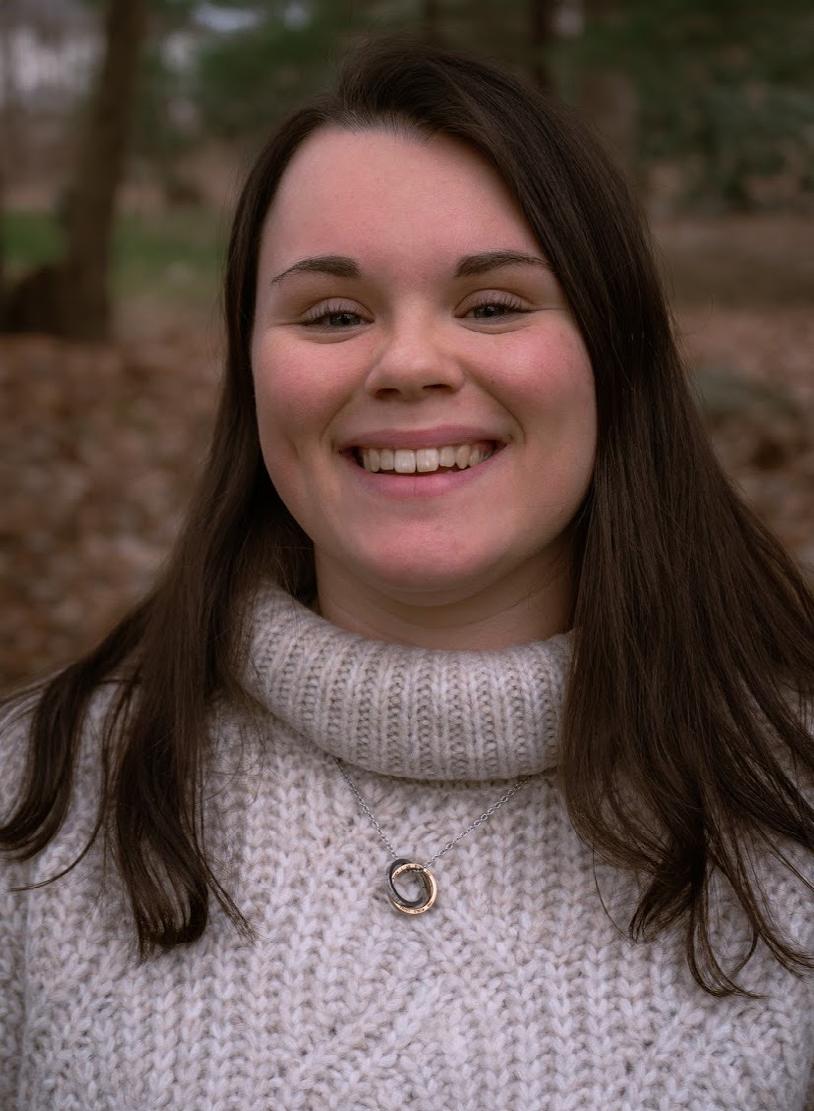
Flash forward about five years and I have since only further confirmed my love for social work. College transformed me, expanding my world from the rural town in North Jersey where I grew up to one where I attended a school that pushed me to think in ways I never had before. And it was the push I needed. I started changing—from the shy girl who never spoke her mind to a confident go-getter that would not take “no” for an answer, nor stand down on topics that mattered. This caused me to take interest in a major-specific club at Monmouth University: The Social Work Society. As a freshman, I attended a late-night meeting, dragged along by a friend
who would later become a huge social justice influence on me. We made glitter-jars, socialized, and I remember thinking, “there must be more to this.” The next year, I joined the executive board of the Society as secretary, dipping my toes into a leadership position, and I have never looked back. The friend that brought me along stepped into the president role, and she eventually convinced me to do the same. Now a second semester senior, I sit as the president of Monmouth University’s Social Work Society.
The most impressive event the Social Work Society puts together each year is our Annual Teach-In. The executive board decides on a topic each year that we believe is relevant and needs to be discussed in the realm of social work. Each executive board member reaches out to professional contacts and invites them to speak. This past year, we engaged in rigorous and informative conversation around Anti-Racism and Social Determinants of Health, inviting professionals from social work, public health, education, and other disciplines to talk about their personal experiences with anti-racist practices as well as their experiences in the broader field. We had over one hundred people attend this event virtually, both from inside and outside of Monmouth’s School of Social Work. It was the largest turnout we’d had in several years.
The past few years have not been easy. COVID-19 has caused our club, and us as social workers, to think differently about our approach to serving others. The Social Work Society noticed
freshmen and sophomores were being hit the hardest by these disruptions, despite our best efforts to support them. Regardless of how hard we tried, we could never quite understand what their experiences had been for the past two years. The best we could do was be present and willing to listen should they want to reach out. Events can always make a comeback when COVID eases, but if these young social workers feel like they do not have anyone to look up to or mentor them, I will not have done my job.
In my burgeoning social work career, in the club, and throughout social work at large, my hope is that we can come to the table with more compassion, inclusion, and fervor for change than we already do. The only way to continue to grow our impact is to treat obstacles not as barriers that halt us, but as walls that can be scaled with the help of others. I would not be half the leader or social worker I am today without my amazing team, my external supports, and the naysayers who told me to do something else. They combined to spark and nurture the fire within me. I hope in my time at Monmouth and as I move through my career I can do the same for others.
38 | NJFOCUS •March 2022
Student Center
THE PLIGHT OF BLACK MASCULINITY: Being Tough vs. Acting Tough
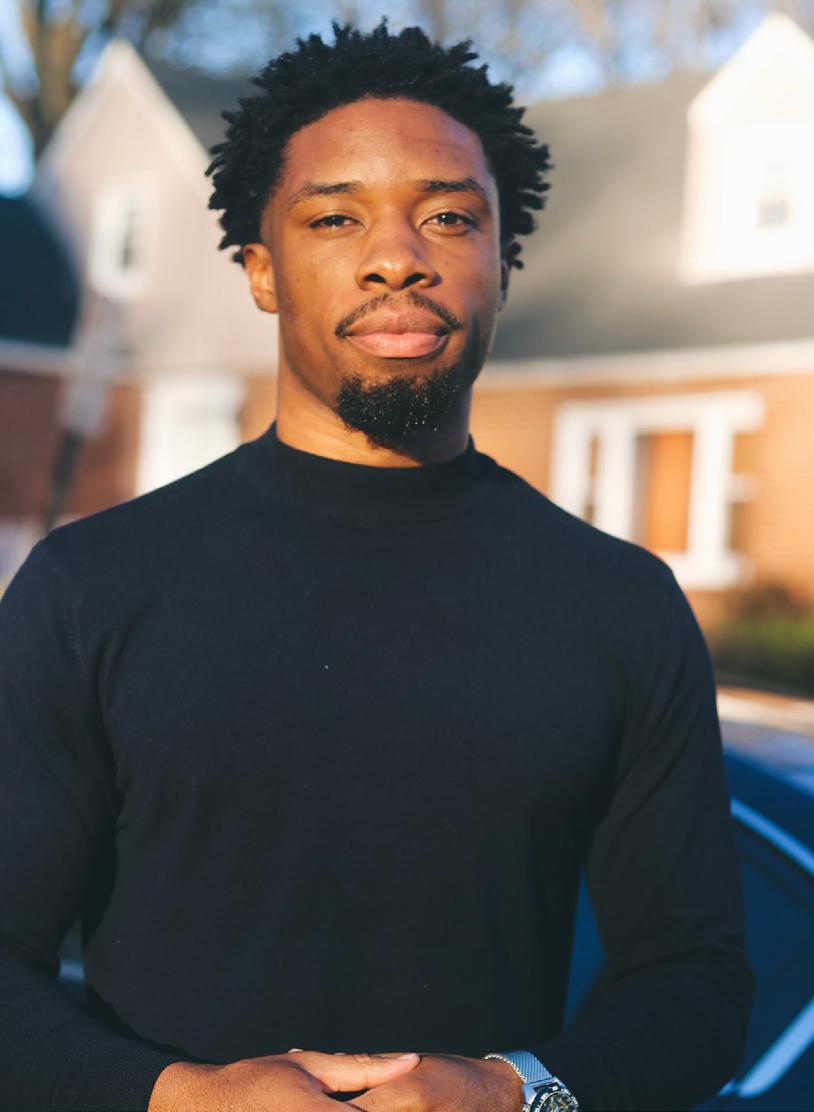 By Eric Okai, Montclair State University, MSW Class
By Eric Okai, Montclair State University, MSW Class
of
2023
“
Black men have to be tough to survive.” This is a truth I live by. Below I provide readers with two personal definitions and aspects of “toughness” and will differentiate the two as “being tough” and “acting tough.” Both definitions are in reference to Black masculinity. I define being tough as being emotionally detached and hardworking. Acting tough is defined as portraying a persona that others may perceive as intimidating. I came to this notion as it relates specifically to Black men from within my childhood household, my peer groups, and the media.
Being tough and acting tough became a model for how I formed my worldview of how Black men should behave. If you did not act tough you were considered weak and were also an easy target for people to take advantage of and treat as less than. Being tough was created for me and modeled by my parents, who emphasized the weakness of men who expressed vulnerable emotions, such as crying. It was evident to me that this was unacceptable, as I would face judgement from my siblings and was reprimanded by my parents. It did not help that I was an extremely sensitive kid. Oftentimes when I would cry, I would get frustrated because I was never really able to express how I felt in a healthy way. As a result of this, as I grew older, I developed a tough demeanor to mask my emotions and “be a man.”
As I grew into adulthood, my mother conveyed that being a man meant working four jobs and going to school full time. The red eyes, droopy face, and dragging feet I displayed coming home after a long day was considered the epitome of a hard-working man. Not coincidentally, this was the same way my father would typically come home after a long day at work.
According to Lawson (2004), Black mothers historically share a huge responsibility in the development of manhood and masculinity. Black mothers would often utilize examples of hard-working men within the family
who persevered through challenges and difficulties while maintaining their pride and dignity. Adversely, if Black boys did not live up to their mother’s expectations of manhood, mothers would express concerns that their sons were being irresponsible, disloyal, and dishonest. This in turn affects Black boys’ sense of masculinity and possibly affects them emotionally, which may result in pushing them towards being tough 1 The affirming words I received from my mother definitely motivated me to continue my intense work ethic and further develop my understanding of being tough .
Acting tough on the other hand, was something I began to learn from peers as early as kindergarten. One day in kindergarten, a friend hit me with his hat and I cried about it. His response—as a 5-year-old trying to deescalate the situation—was to tell me, “men don’t cry.” I learned early on that to be a man, I needed to act tough; and if pressed further, prove to them that I was not weak. As I grew older, I often portrayed a tough demeanor in order to emphasize my toughness. I acted tough . I grew to understand that people would always try to examine me and test me to see what they could get away with. Luckily, I learned my lessons early on, so I knew how to carry myself and also to mask how I felt emotionally when I was sensitive about a situation.
Further cementing my understanding of acting tough were the portrayals of Black men I saw in the media. I grew up in an era where rap artists were idolized not just for their music, but for the lifestyle they portrayed, as well. I wanted to be just as tough as them—to establish my masculinity as I saw it portrayed daily through their music videos. This further continued my approach to developing a persona that modeled powerful Black men who looked tough and gained social status because of it. I now recognize commercial hip-hop has created an
NJFOCUS • March2022 | 39
Student Center
environment that nurtures aggressive behaviors through music videos and lyrics that set forth a continuum of Black masculinity. 2
Being tough and acting tough were norms in my development. These behaviors allowed me to cope with rejection and being perceived as weak. Over time, I was able to gain control of my reactions when I felt the need to be emotional. I became tough through the observation of my social environment, the socialization of my parents and peers, and watching prominent Black male figures. The result is that I learned to shun my own feelings in order to protect those same feelings. Denying the existence of my emotional experience was easier than accepting them.
As I continue my journey in the field of social work, I plan to continue to influence Black men through mentorship. What I have come to understand, even within the field of social work, is that representation matters. If there are no Black men present to discuss the issue of what masculinity looks like in their community, the issue remains. I have been able to mentor people of various ages and provide a space where Black men can

be their authentic selves without the fear of rejection. The ability to share personal experiences and past trauma proves true strength, and this will create space for Black men to stand firm in the process of healing. There are struggles within each journey in life, but each journey breeds strength, conviction, and an understanding of self that no one else will be able to take away from you.
References:
1Lawson Bush, V. (2004). How Black Mothers Participate in the Development of Manhood and Masculinity: What Do We Know about Black Mothers and Their Sons? The Journal of Negro Education, 73(4), 381–391. https://doi. org/10.2307/4129623
2 Gause, C. P. (2008). Chapter 2: BLACK MASCULINITY. Counterpoints, 337, 37–59. http://www.jstor.org/stable/42979205
40 | NJFOCUS •March 2022
Student Center
EXPANDING HORIZONS: New Ways to Use Your Social Work Degree
By Carly Trill, MSW
Ibelieve everyone has a social worker within them. While most do not pursue the title, we all hold the power to shape the world and help other people. Donating to causes, volunteering, participating in awareness campaigns for social issues, and lending a listening ear when someone needs to be heard are just some examples of how each one of us can invest in the happiness and well-being of other people. After all, that is what social workers do – we invest in people. I also believe every sector of the workforce has a role for social workers within it. Whether it be a nonprofit entity, a government agency, small business, corporation, or political movement, every type of organization can benefit from knowing how to invest in people and advance social justice.
I entered college with the same preconceived notions of social work as most of the world – counseling and casework. I did not realize how diverse our field is, and the breadth of careers that can be achieved with our degree. On my social work journey so far, my focus has shifted from supporting individuals to changing pieces of the world. Two ways this can be done are through population health work and corporate/business social work. These more macro-focused paths present vast opportunities for social workers to apply their skills in less traditional social work environments.
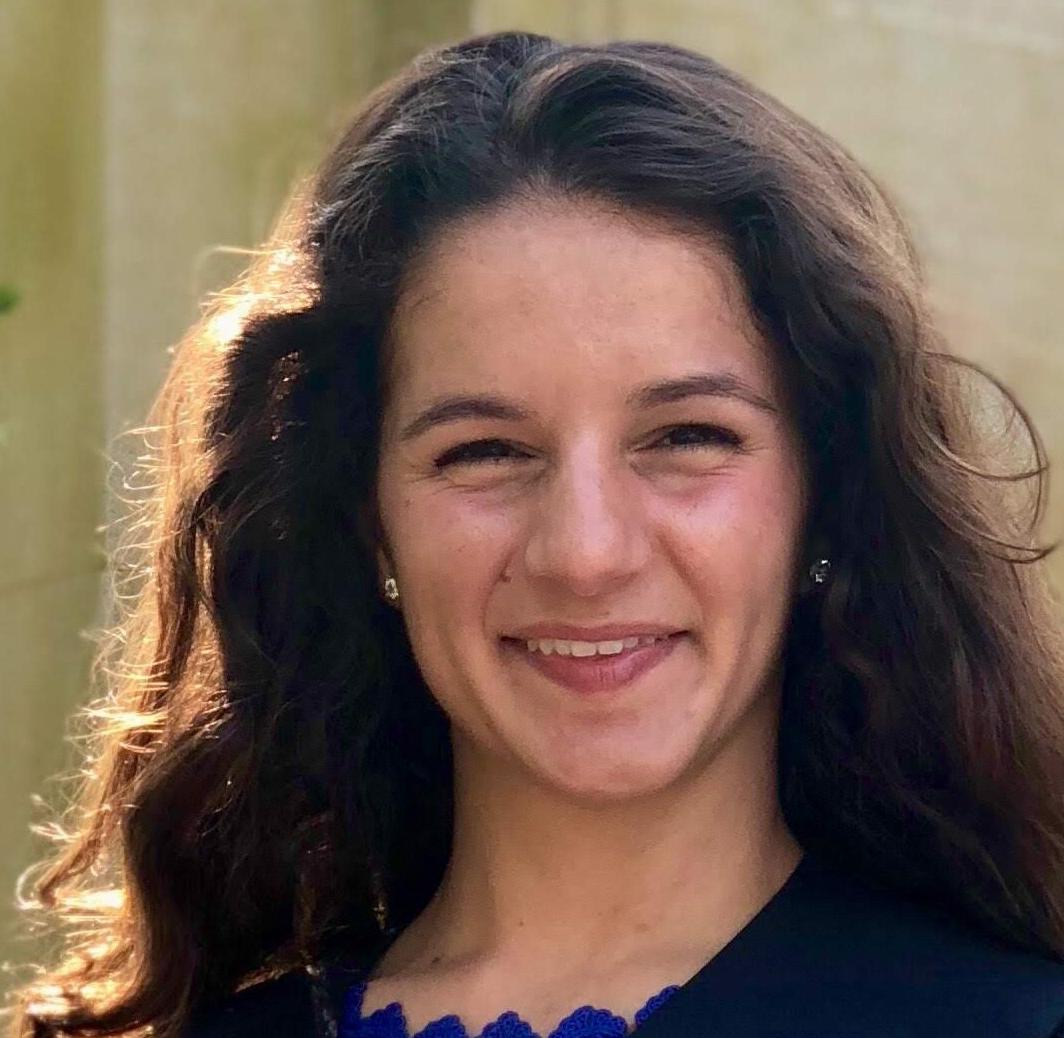
POPULATION HEALTH
Social workers fight for justice—social, economic, environmental, and more. Some of this work falls into an area called population health. It is an approach to health that aims to improve the health of an entire human population—fertile ground for social workers. Population health has been described as consisting of three components—health outcomes, patterns of health determinants, and policies and interventions. For instance, a social worker may ask: why does air and water quality vary by zip code and how does this impact the health of residents in those areas?
Social workers can then engage in research and policy action to identify and enact solutions to these problems. Moreover, by building key relationships and partnerships, they can influence regulations in business and government to create healthier environments.
I currently work for a health equity coalition where we expand access to things like healthy food options and recreational opportunities for the community that we work in. This role falls somewhere between micro and macro social work. It is very much research-based –our blueprint for action was built from a concept called the social determinants of health, the economic and social conditions that influence individual and group differences in health status. Simply put, a person’s health rests on much more than their ability to see a doctor (although this plays a part), and that culture, environment, and opportunity are the true pillars for health. This research-based concept is inspiring social change across the world regarding population health and healthcare.
CORPORATE & BUSINESS SOCIAL WORK
When done right, businesses are places that can elevate the well-being of people. There are so many different access points where this can happen within a company: Human Resources, Corporate Giving, Corporate Social Responsibility, Change Management, Diversity Equity & Inclusion, just to name a few. Unfortunately, a focus only on profit often draws companies away from what is most important – investment in and the well-being of their employees, the people they serve, and the communities they operate within. The irony is, when the well-being of people is overlooked, the bottom line eventually suffers, too.
NJFOCUS • March2022 | 41
Student Center
So, what can we, as social workers, do to transform businesses from solely profit-driven entities to ones that also invest in humans? As it turns out, a lot. In many traditional social work roles, we are the recipients of grants. Now, imagine being on the other side of that transaction—using social work ethics and values to guide where and how foundations disburse their funds? Or, imagine working in Human Resources to resolve conflicts, create and uphold policies, and support the learning and development of employees? Personally, I aspire towards Corporate Social Responsibility, the function that helps a company examine their impact on the world and improve upon it. A social worker in this role has the opportunity to address the harms—intended or not—a company has on the surrounding community, and what needs to change to improve this. The Corporate Social Work Collective is a great resource to learn more about these types of careers.
There are plenty of roles for social workers within businesses and corporations, but what about social workers with a more entrepreneurial outlook? Such social workers may want to consider launching a social enterprise. These are for-profit businesses dedicated to addressing a social problem. An example of this would be a restaurant that hires at-risk youth and trains them in restaurant/hospitality work, so they can have a secure source of income and better options for the future.

BUT WAIT—THERE’S MORE!
Don’t forget that in any realm, social workers are leaders, too. We are people-people who understand social systems. Whether in for-profit, government, or non-profit roles, many with our degree become managers and directors, and even founders of organizations. I hope that sharing some of what I have learned on my journey can help you imagine even more possibilities for yourself and for your colleagues. I believe that each one of us brings something special to the field of Social Work. While our ability to empower people remains constant, the spaces we can do this in are ever evolving.
About the Author:
Carly Trill is a social worker currently in the Public Health field. She aspires towards a career in Corporate Social Responsibility. She is also an artist of countless paintings and drawings and writes poetry as a way of expressing herself. She feels lucky to call the Jersey shore her home, where she spends much of her time with family and friends.
42 | NJFOCUS •March 2022
Student Center
A SOCIAL WORKER GAVE ME A SECOND CHANCE AT LIFE; THIS IS HOW I PAY HER WORK FORWARD
By Lori Zerrusen, Seton Hall BSW Class of 2022
Many social workers are drawn to the profession because they have had a social worker impact their life. My story is no different. In my midforties, I found myself in an emotionally and physically abusive marriage. I felt trapped because I only had a high school education and hadn’t been allowed to work outside the home for over fifteen years. With three children and no means of support, I was in a very scary and lonely place. I wanted desperately to leave my husband and change my life but felt helpless, confused, and stuck. It was at this crucial moment that I met my first
social worker. With her help, I was able to take the first steps to changing my life. As often happens in abusive situations, I had become increasingly isolated from those around me. Having the social worker see me, hear my story, and help me name the abuse I was experiencing was life altering.

For me, this social worker was a beacon of light and hope. She helped me see that education was the key to changing my life. My ex-husband had told me repeatedly that I was “too stupid” to waste money on going back to school. I heard it so often that I believed it. Despite this, I ultimately decided to take a chance on myself and enrolled in a community college. To my surprise, I discovered that not only was I not stupid, but am quite a good student. Two years later, I became an undergraduate student at Seton Hall University. In my classes and field placements, I met more social workers who encouraged me and believed in me—long before I had developed belief in myself. While I still struggle with confidence and trusting my instincts, I no longer let fear hold me back from accomplishing my goals. I have come to understand that, while I may make mistakes along the way, every step on this journey is an opportunity to learn and grow.
At Seton Hall, I have met many wonderful professors who have challenged me to become a better social worker. I attended the Buccino Leadership Institute program and have taken part in other amazing opportunities. For example, I had no idea I was interested in research, but in my first semester I wrote a research paper, “The Implications of COVID-19 On Older Adults: Challenges and Opportunities,” which was published in The Locust, the Seton Hall Journal of Undergraduate Research. I’m currently on

NJFOCUS • March2022 | 43
Student Center
a team drafting a grant proposal on a gerontology related research project that seeks to understand what draws people into gerontology studies as well as how interdisciplinary partnerships can innovatively affect change. In addition, in my senior field placement, I have had the privilege to intern at the New Jersey Commission for the Blind and Visually impaired (CBVI), and to advocate for the disabled.
I have always been drawn to serving vulnerable populations and promoting the welfare of communities marginalized by society, and the curriculum at Seton Hall University and my internship at CBVI have helped shape my passion for social work and my desire to integrate macro, mezzo, and micro practices. In addition, these experiences have furthered my interest in mental and behavioral health and strengthened my desire to work with disadvantaged people, including older adults and individuals with disabilities, their families and communities. I believe that social workers have a unique opportunity to advocate for change in policies, programs, and practices to ensure that all people, particularly marginalized groups, receive the skills, training, resources, and opportunities to achieve their full potential.
After graduating from Seton Hall, I plan to attend graduate school and focus on a career working with older adults. I care very much about this population, and I believe the field of gerontology requires more social workers. I also want to challenge stereotypes and eliminate misconceptions within our society. Along with fighting discrimination, oppression, and injustice in all its forms, I will strive to be a voice for all who are unable to advocate for themselves and to improve the world one person at a time.
Seven years ago, I could never have dreamed of attending a school like Seton Hall, applying to graduate school (I just learned I have been accepted to Columbia University’s MSW advanced standing program!), or being asked to write for NASW-NJ FOCUS. Everyone deserves a second chance, but not everyone is fortunate enough to get that chance. I believe the best way to repay the gift I received from the first social worker in my life is to work hard every day to advocate for and help others who have been marginalized and left out of the circle of opportunity. It was my first social worker who helped set in motion all that I have achieved. One day, I hope to be that first, transformational social worker in the life of others.
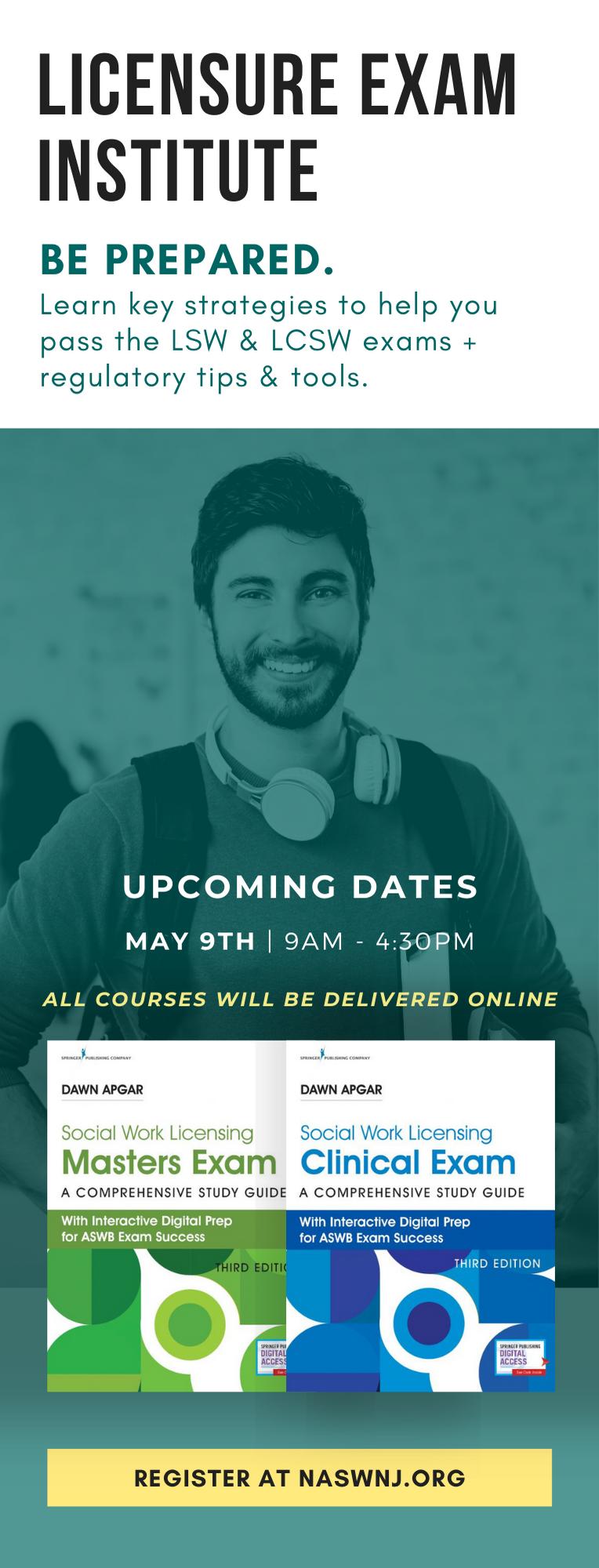
44 | NJFOCUS •March 2022
Student Center
PARTNER SPOTLIGHT
People enter the social work profession to help others. Our training and education for this work focuses on clinical skills, macro and policy knowledge, and other skills we need to best advocate for our clients and navigate the various systems that impact them. However, there is a business side to our profession, as well, and it is critical to build, maintain and navigate with integrity those systems put in place to allow us to best meet client needs, protect our client’s confidential information, and deliver services ethically. Over the past few years, you have shared with us that these business components of our profession are ones you frequently have questions on, seek additional support with—and that you are looking for turn-key solutions to these issues.
As such, we are thrilled to share with you a technology platform that addresses several of those key issues—giving you the tools you need to safely communicate with your clients on compliant software, using secured, encrypted platforms from anywhere your business finds you—from your office, to home, and anywhere in between.
RingCentral, a national leader in Voice Over Internet phone systems (VOIP) has dedicated time with NASW-NJ to learn the technology needs of social workers, getting a sense of the tools you need to be successful, the challenges you’ve shared with us over the years, and understanding the various ways they are positioned to best support social workers’ needs. They also recognize the cost of doing business is
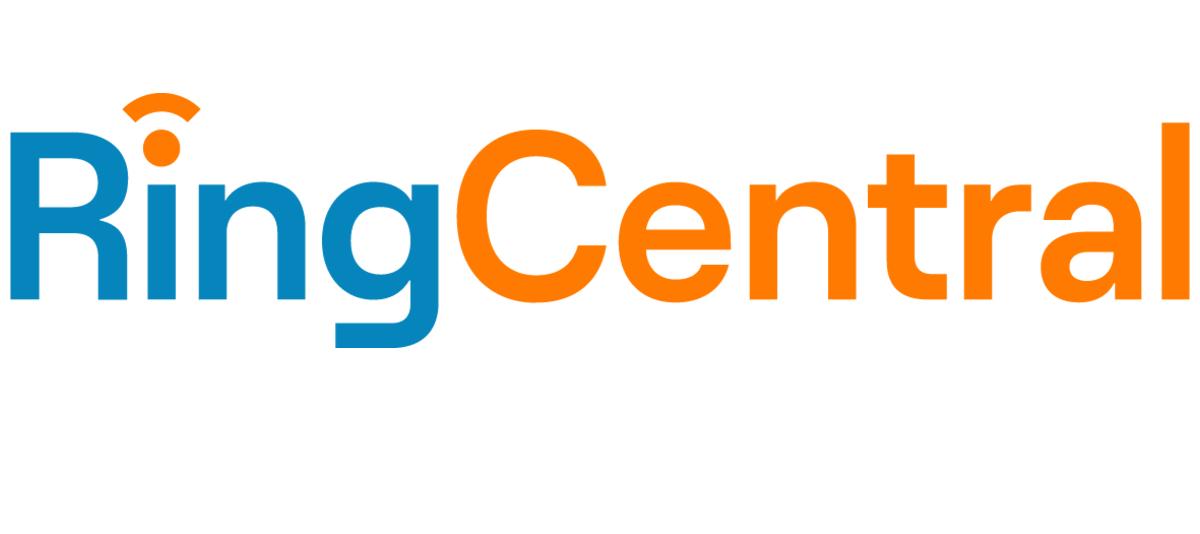
often quite extraordinary for social workers and are committed to making their services as affordable as possible for the profession.
RingCentral offers a variety of services that include phones (you can port your existing number), secure texting, and fax-to-email solutions as well as video conferencing for large organizations, solo practice and all settings in between. They have established a dedicated online portal where you can learn more about their services for social work professionals and have created a dedicated phone line— specifically for our members to contact—so that you can easily have your questions answered and lock in special rates as a member of NASW-NJ.
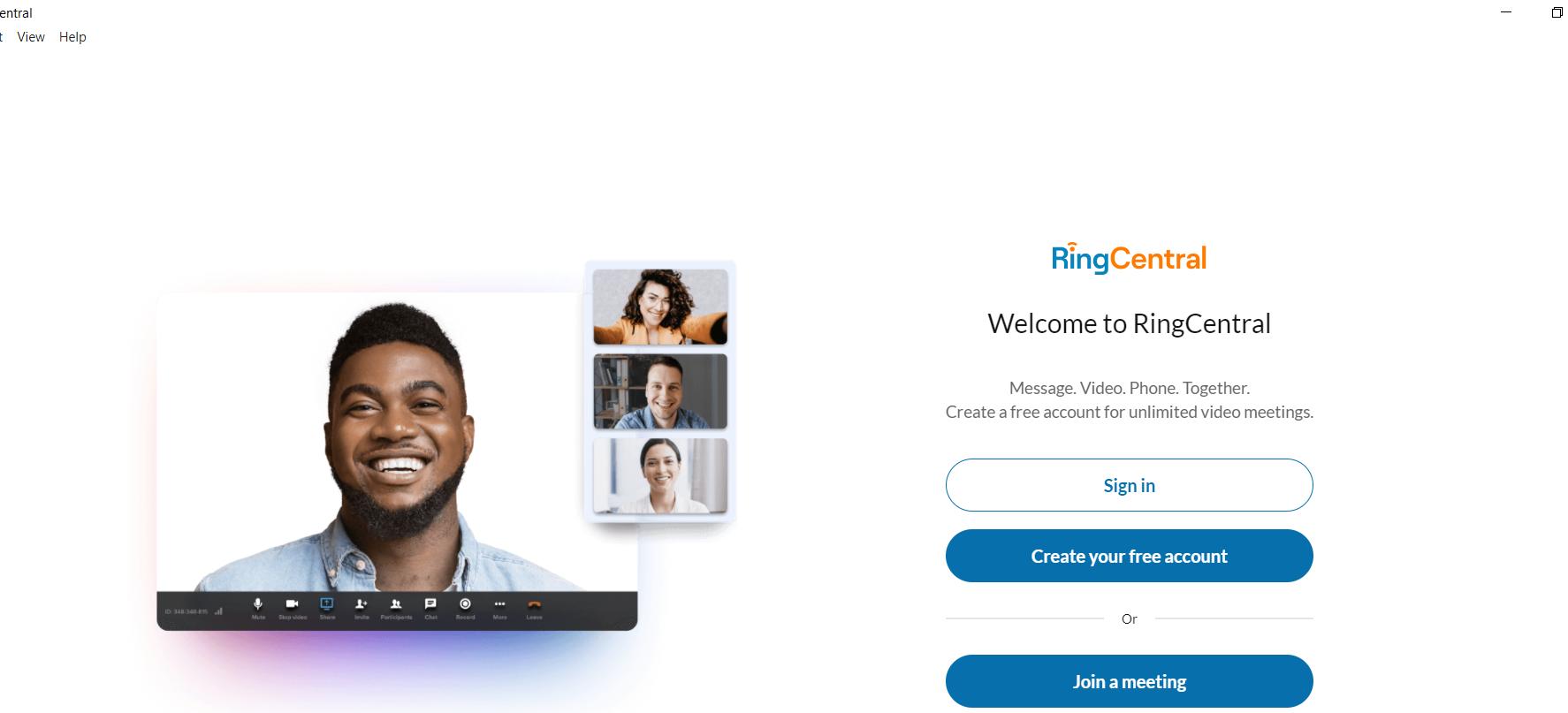
“We recognize social workers are on the front lines daily, connecting people to resources and helping our communities thrive. The work you do is challenging and the profession needs tools and resources to help ease that load, while at the same time maintaining the utmost in security and confidentiality,” said Garrett Mathews of RingCentral. “We are excited to partner with NASW-NJ to support the extraordinary work being done by social workers.”
Here at NASW-NJ, we couldn’t agree more—and we are thrilled to bring this new resource to you. You can learn more about the products, services and unique member discounts by visiting Ringcentral.com/naswnj or email ringcentral@naswnj.com
NJFOCUS • March2022 | 45
Members Only Perks
With over 6,500 members in our New Jersey family, you are part of a larger family of social workers, a network of friends and colleagues who share your commitment to the profession and strengthening our community. While the chapter has many opportunities to connect on a broader level—from educational programs to advocacy events, there are also many great ways for you to connect with your colleagues locally or on a specific area of interest. Read on to learn some ways in which you as a member can build your connections, network and grow in smaller, more intimate spaces—and virtually!
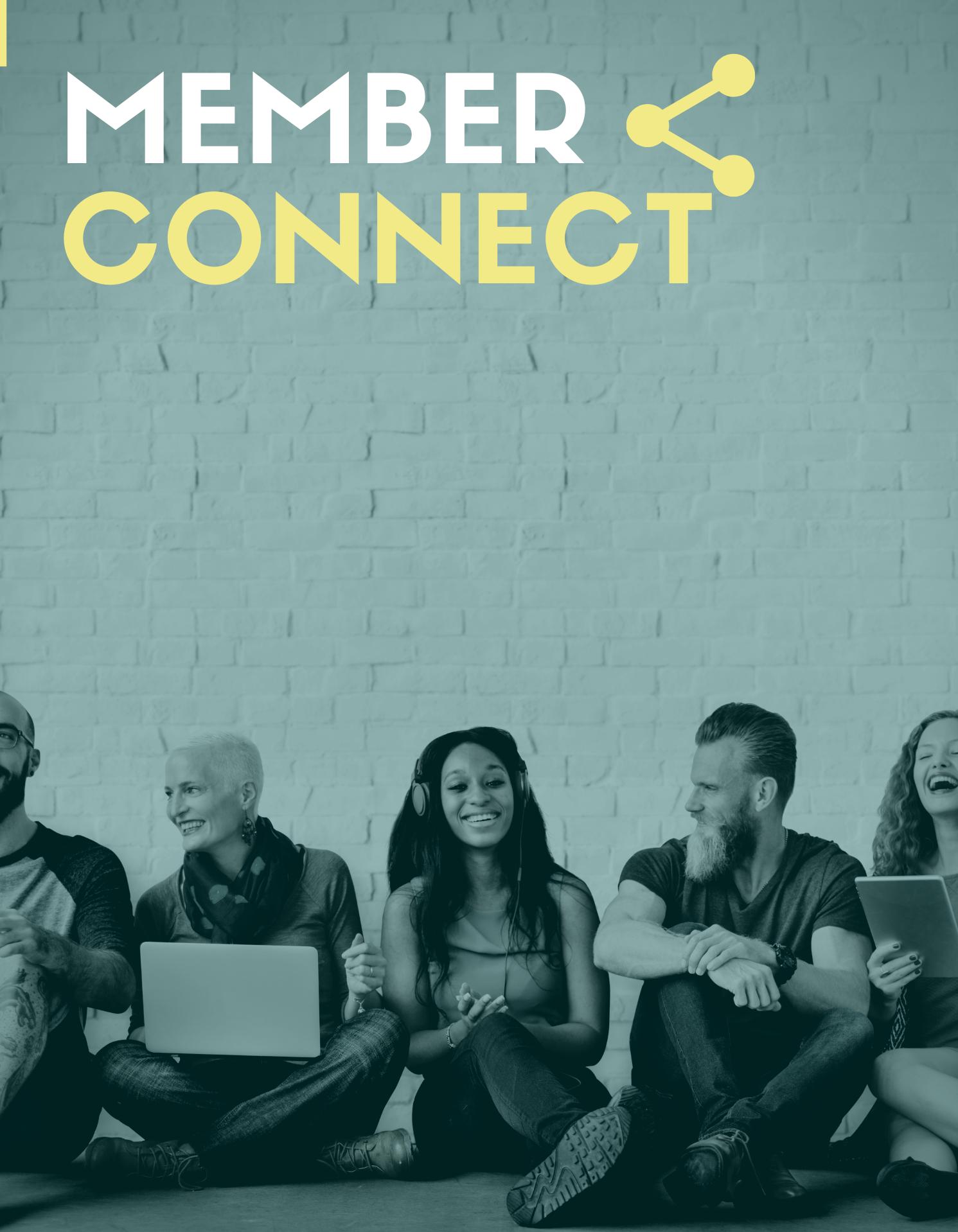
MEMBER NEWS
Welcome to Member News — A space dedicated to celebrating the professional achievements of our members from around New Jersey. We want to highlight your professional accomplishments to underscore the great work being done by social workers in our state.

Send submissions to jfeldman.naswnj@socialworkers.org .
FRAN
GIZZI, LCSW, C-CATODSW, ICGC-II...
was awarded the 2020 Tony Milillo award recipient by the Association of Professionals Treating Problem Gambling (APTPG) at a virtual special awards presentation.

MARINELLE REYNOLDS, LCSW…
has been nominated as a candidate for the 2022 Armed Forces Insurance Military Spouse of the Year. As a social worker and military spouse, Marinelle says she has experienced and witnessed the many challenges that military families face. She has focused on a multi-systemic approach to advocating on issues like military spouse unemployment and unhealthy housing practices as well as addressing military mental health needs and challenging unfair practices. She has also been pivotal voice in advocating for military spouse licensing reciprocity and was recently featured on NPR, All Things Considered. She hopes to use this platform to amplify the voices of military spouses and families in 2022 around issues related to diversity and inclusion, military spouse employment, and access to quality mental health.
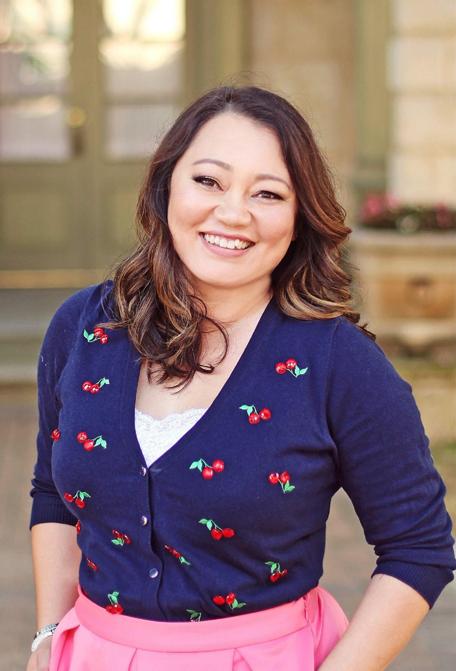
MEMBER CONNECT
Welcome
T O Y O U R N E T W O R K F O R S O C I A L W O R K B E S T P R A C T I C
W e ' v e w e l c o m e d m o r e t h a n 1 3 0 n e w N A S W m e m b e r s t o o u r C h a p t e r s i n c e D e c e m b e r 2 0 2 2 . T h a n k s t o a l l o f y o u , N A S W - N J h a s g r o w n t o b e c o m e t h e s e c o n d l a r g e s t N A S W C h a p t e r i n t h e c o u n t r y !

W e l c o m e a b o a r d t o o u r n e w e s t m e m b e r s ! !

ATLANTIC/CAPE MAY/ CUMBERLAND UNIT
T h e d a
M a r y
J a n i c e
N a t u r y l
A n n e l i s e a
M a r t i n a
B r i a n n a
A l l e n
B u r n s
C a r t e r
G r a y
J o h n s o n
S i n g l e t o n
W i l l i a m s
BERGEN/PASSAIC UNIT
A l i c i a
A l i s a
C o l e t t e
D e b r a
M e l a n i e
Z u l m a
R o s e l y n
J a c q u e l i n e
L a u r a
A l e x a n d r a
K e v i n
BERGEN/PASSAIC UNIT (CONT.)
B e r n a r d u c c i
A b d e l s a l a m
B r a n t l e y
C h a t m a n - F i n l e y
C h e p l i c
C h e u n g
C l a r k
L a C o u t u r e
M a j e w s k i
P o l i m e n i
R a m i r e z
E m i l y
M a r i a

J a n i n e
E l e n a
R a c h e l
M i c h e l l e
C h a r l o t t e
A l e s s a n d r a
K a t e
R o b b i n s
R o j a s
S a b o t
S p e k t o r
S t a m b e r g
S t e r n
S t e v e n s o n
T h o m a s
T h u r m a n
S
M M
E
& C O
U N I T Y
MEMBER CONNECT
N E W M E M B E R S ( C O N T . )
CAMDEN/GLOUCESTER/ SALEM UNIT
T a y l o r
C o u r t n e y
R h s h i m a
L a e n a
S t e p h a n i e
T i e c e
H e a t h e r
A m e l i a
ESSEX
N a d i a
M i c h e l l e S h a n t e
M a r i a n n e
A u t u m n J e s s i c a
T y - V o n n a
A n n
C o u r t n e y
Q u i n t e s s a
L i s a
H e a t h e r R o s a
D o n n a
N i k o l e
Y v e t t e
S h a n e e q u a S l o a n e
A c t o n B a r b e r a
H a r m o n M c D o n a l d R a y m o n d R i d d i c k
T h o m a s
W o j e n s k i
UNIT
A m r a n i B a r b e r B r e e d l o v e B r o w n
D a n i e l s
F e r n a n d e z
J o h n s o n K o e n i g
L a u r o r e
M c C o l l u m
P a r k s P i c i n i c h P y e S c r o S a m o r i
V i a l e t
W a d e W a r d W i l l i a m s
HUDSON UNIT
K a d e e d r a
C u e r i s h a
D a n i e l a I v e t t e
H e y d o n
A r l e n e
T a y l a r
R o m i n a
B r o w n e B r o w n e d e S a
D e L a C r u z
H e n s l e y
J o s e p h
K e l l y
V e n t u r a
MERCER/BURLINGTON
S o p h i a
L a u r a
Y v o n n e
M a r y
P a i g e
M a r j o r i e
MERCER/BURLINGTON UNIT (CONT.)
M a r i a n a
R e n e e
K e l l y
L u r a
K e l l y
S h a n n o n
G o m e z M a r t e r
M o n a c o
M u n n s
MIDDLESEX
S a u m y a
J e n i s s e
J u l i a n n a
J o r d a n
M a g a l y
L a u r e n
D a n i e l l e
D a v i d
L a u r e n
D i a n a
M a n i s h a
P a o l a
K r i s t e n
J u l i a n n a
MORRIS UNIT (CONT.)
K a t h y
F r a n k
T a t y a n a
C o r r i n e
H a n l ey
H a r v e y
I k h e l s o n
P a r i s h
UNIT
B e w l e y
B o d r o g
E l l i s
E v e r s
F i s k
G a r c i a S a n c h e z
O ' C o n n e l l S w o p e B h a t i a
M a r y
M i c h e l e
UNIT
B u c a r d o
F r a n c o I n d y k
I r i n e o K o r c z a k o w s k i
K u h n
L e a r n
M a n l e y M o n t e r o N e l s o n O g a n d o R a m o s W a l s h
MONMOUTH/OCEAN UNIT

K e l v i n
A s h l e y
S a r a h
L y d i a
M e r e d i t h
M a k e n z i e
M i c h a e l
J e r u s h a
Z a n n i a h
E l i n a
A l y x
K a t i a n a
S h a l a
J a y m e
D a n i e l l e
C a r o l
B a n e g a s B e r m a n B e t r o s
B o v a s s o
C a m p b e l l
D i x o n
F a v a t o
H u l l
J o n e s G l o v e r
K a z i u
L e n n o n
M o r i s s e t
O a t e s
R i v e r a
R o b i n s o n
V i v o n a
MORRIS UNIT
V i c t o r i a
K r i s t e n
S a n d r a
M i c h a e l
B u k e y
C o b o
F i t z s i m m o n s
G o l d m a n
S t a n k i e w i c z
W a l s h
SOMERSET/HUNTERDON UNIT
K a y l y n
A y a n a
C h r i s t i n a
Y a n i q u e
C l a u d i a
B o n n i e
S a r a h
N i c o l e
T r a c e y
B e t t e n c o u r t
B i s h o p
G o n z a l e z
G r e e n
H a w s e
L a v o i e
M a n s h i p
M u r r a y
R o g e r
UNION UNIT
J a s m i n e
L a u r a
J o c e l y n
C a r o l
V a n e s s a
S i o b h a n
S a r a
M a S o c o r r o
G i a n n e l l a
S o n i a
B a r b o z a
B e l l e v u e
C a s t e l l a n o s
C o l e m a n
G o n c a l v e s
H u n z i k e r
K i r s c h
M e n d o z a
M e n e n d e z
V e l e z
T h a n k s f o r B e i n g a M e m b e r !
MEMBER CONNECT
ASWB to allow online proctored licensing exams during COVID


P l e a s e c o n s i d e r a g i f t t o h e l p u s c o n t i n u e m a k i n g a n i m p a c t A $ 5 0 g i f t w i l l g o a l o n g w a y , a $ 1 0 0 g i f t e v e n m o r e , b u t w e i n v i t e y o u t o s u p p o r t o u r w o r k i n a n y a m o u n t Y o u r d o n a t i o n w i l l a s s u r e t h a t w e h a v e t h e r e s o u r c e s t o c o n t i n u e o u r w o r k t o h e l p y o u m a k e o u r p r o f e s s i o n a n d o u r c o m m u n i t i e s s t r o n g e r .
M e m b e r s h i p d u e s d o n o t c o v e r a l l t h e e x p e n s e s i n c u r r e d d u r i n g t h i s i m p o r t a n t w o r k . W i t h s o m u c h a t s t a k e f o r s o c i a l w o r k e r s a n d t h e c l i e n t s w e s e r v e , y o u r s u p p o r t i s c r i t i c a l .
C l i c k t h i s l i n k t o b e t a k e n t o o u r d o n a t i o n s p a g e o r v i s i t w w w . n a s w n j . o r g a n d c l i c k " d o n a t e . "
50 | NJFOCUS •March 2022 HELP US CONTINUE TO
MAKE AN IMPACT
We are proud to stand with our social work brothers and sisters Donations directly to the Chapter are a great way to invest in the future of social work, but regretfully are not tax deductible If you would like to make a deductible donation, please contact us directly so we can help you do so. D u r i n g t h i s u n p r e c e d e n t e d t i m e , N A S W - N J h a s b e e n t h e r e b y y o u r s i d e m a k i n g s u r e t h e n e e d s a n d v o i c e s o f s o c i a l w o r k e r s a r e h e a r d . with lead legislatures to ensure access to Telehealth during the pandemic DCP&P to be more precise in reporting of unsubstantiated cases unaccompanied migrant children from prolonged detention P R E V E N T I N G immigrants at U S border H E L P I N G P U S H I N G NJ BSWE to help with licensing delays W O R K I N G C H A L L E N G I N G the history of privilege in social work to create an anti-racist profession moving forward amicus briefs in legal cases P R E S S U R I N G F I L I N G E X A M I N I N G
-
-
Y O U M A K E A D I F F E R E N C E , A N D W E T H A N K Y O U . N O W W E A S K F O R Y O U R H E L P T O M A K E S U R E T H A T Y O U R V O I C E S A S S O C I A L W O R K E R S C O N T I N U E T O B E H E A R D .
B E A P A R T O F O U R C O N T I N U E D , C O L L A B O R A T I V E S U C C E S S . T H A N K Y O U F O R A L L Y O U D O .
PROVIDING THE SKILLS TO GET AHEAD
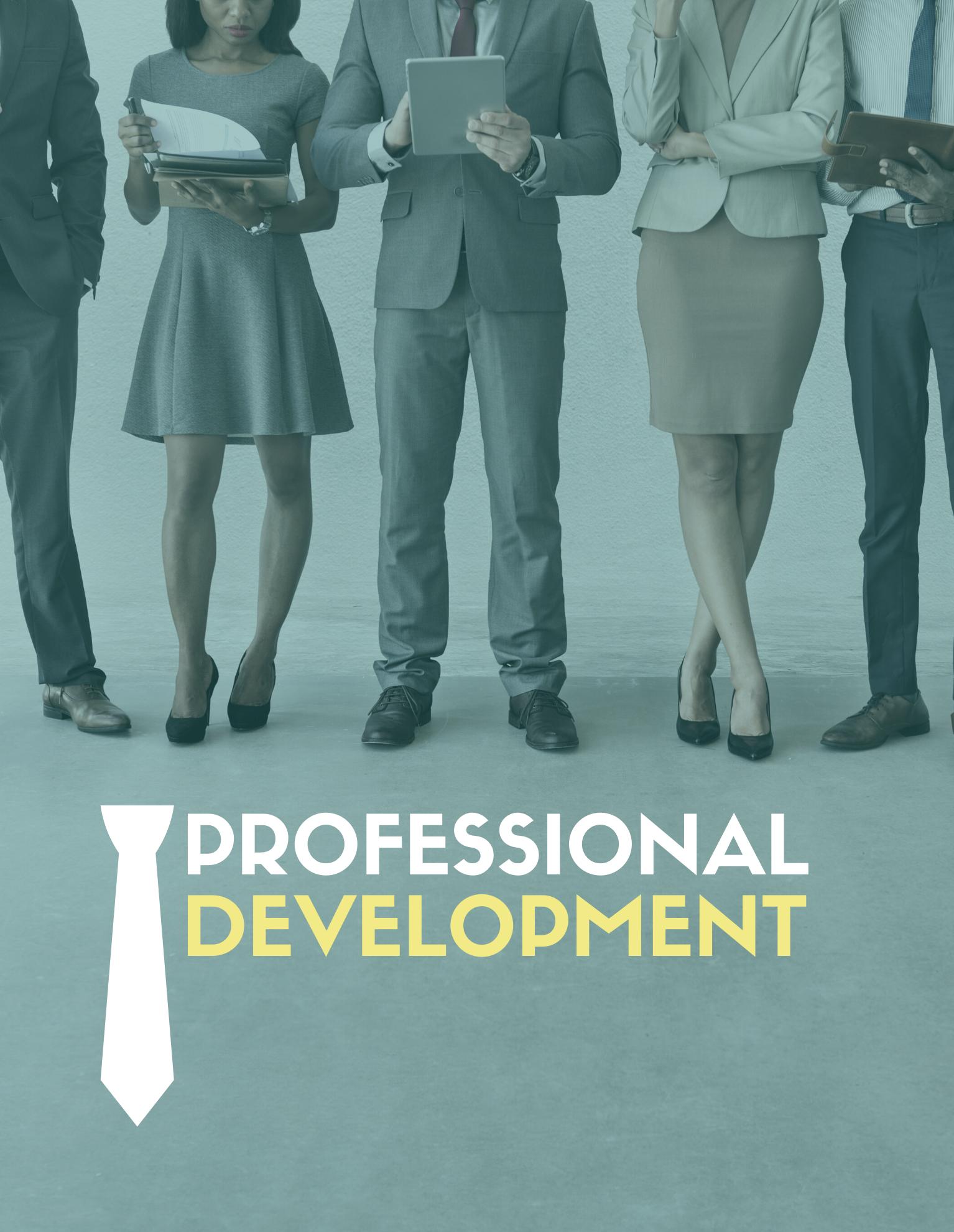
UPCOMING CE
FREE FOR MEMBERS
Emotional Freedom Technique (Tapping for you and your clients)
March 23, 6:00 PM - 7:00 PM EDT
1 Clinical CEU
Register
A Conceptual Overview of the Internal Family Systems Model of Psychotherapy
March 25, 9:00 AM - 1:00 PM EDT
4 Clinical CEUs
Register
FREE FOR MEMBERS
Harm Reduction Strategies
March 30, 6:00 PM - 8:00 PM EDT
2 Clinical CEUs
Register
Clinical Supervision Course

April 05 (SOLD OUT)
20 CEUs
Register for June 06 course
An Inside Peek into Dialectical Behavior Therapy (DBT)

April 08, 10:00 AM - 1:00 PM EDT
3 CEUs
Register Suicide Prevention: Black Youth Lives Matter Too
April 14, 6:00 PM - 8:00 PM EDT
2 CEUs Register
Prescription Opioid Misuse and Dependence in New Jersey
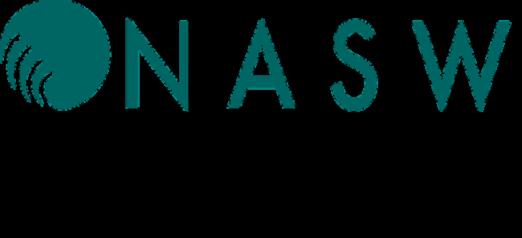
June 08, 2:00 PM - 3:00 PM EDT
1 CEU Register Downloading the DSM: How to Upgrade from
5 to 5TR
June 10, 9:00 AM - 12:00 PM EDT
3 Clinical CEUs
Register
r o g r a m s 2
T O L E A R N M O R E & A P P L Y V I S I T : n a s w n j . s o c i a l w o r k e r s . o r g / P r o f e s s i o n a l - D e v e l o p m e n t / C E - C o u r s e - A p p r o v a l N E W J E R S E Y C O N T I N U I N G E D U C A T I O N A P P R O V A L C O L L A B O R A T I V E A D D C E C R E D I T S T O Y O U R P R O F E S S I O N A L D E V E L O P M E N T C O U R S E . R E C O G N I Z E D B Y T H E N J S T A T E B O A R D O F S O C I A L W O R K E X A M I N E R S A S A N A P P R O V I N G E N T I T Y F O R S O C I A L W O R K C E U S I N T H E S T A T E O F N J
P
0 2 2










N A S W - N J C L I N I C A L S U P E R V I S I O N C E R T I F I C A T E B e c o m e a C l i n i c a l S u p e r v i s o r N E X T C O U R S E D A T E S : M O R E I N F O A P R I L 5 ( S O L D O U T ) J U N E 0 6
A D V E R T I S I N G
Over 6500 readers
Digital delivery

Frequency: 1 issue

Full-color, camera-ready image sent to NASW-NJ via electronic upload
Full page (no bleed): $1000
Advertorial: (story ad w/ image or logo) $1500
1/2 page: $700
1/3 page: $450
1/6 page: $300
Inside back cover: $2000
Back cover limited availability, call for details
N E W L A R G E R A D S , S A M E R A T E S
C O N T A C T : F O C U S A D / I M A G E R A T E S :
naswnj@socialworkers org, call 732-296-8070, or visit naswnj socialworkers org/About/Advertise for more information 54 | NJFOCUS • March 2022
wwilliams
N A S W - N J S W A G



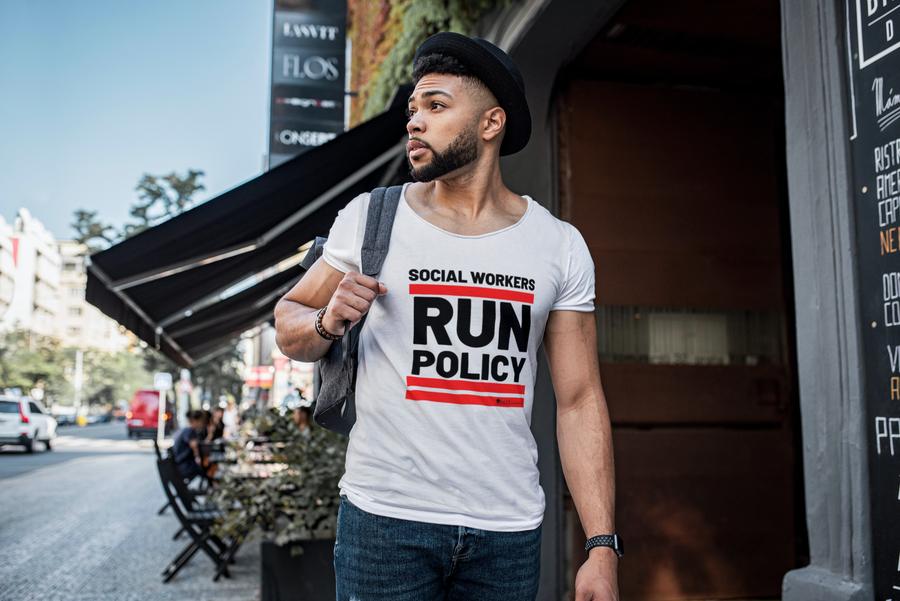



NJFOCUS • March2022 | 55
G E A R F O R D E S I G N E D B Y L I V E T H E G E G N L H S O C I A L W O R K E R S , S O C I A L W O R K E R S . V A L U E S , L O U D L Y . S H O P H E R E R E P Y O U R N J P R I D E
EARN UP TO 23.5 CEUs
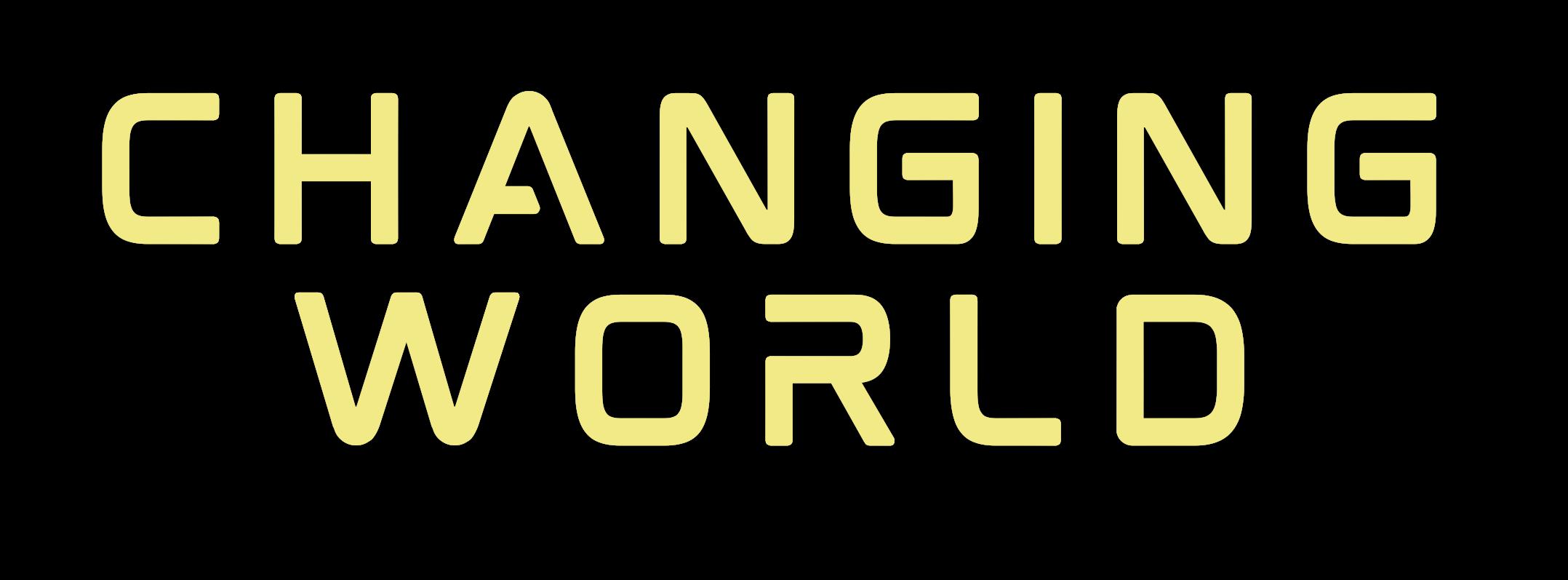




O F S O C I A L W O R K V I R T U A L C O N F E R E N C E M A Y 1 - 2
FUTUR SHAPE THE






















































































































 By Eric Okai, Montclair State University, MSW Class
By Eric Okai, Montclair State University, MSW Class





































